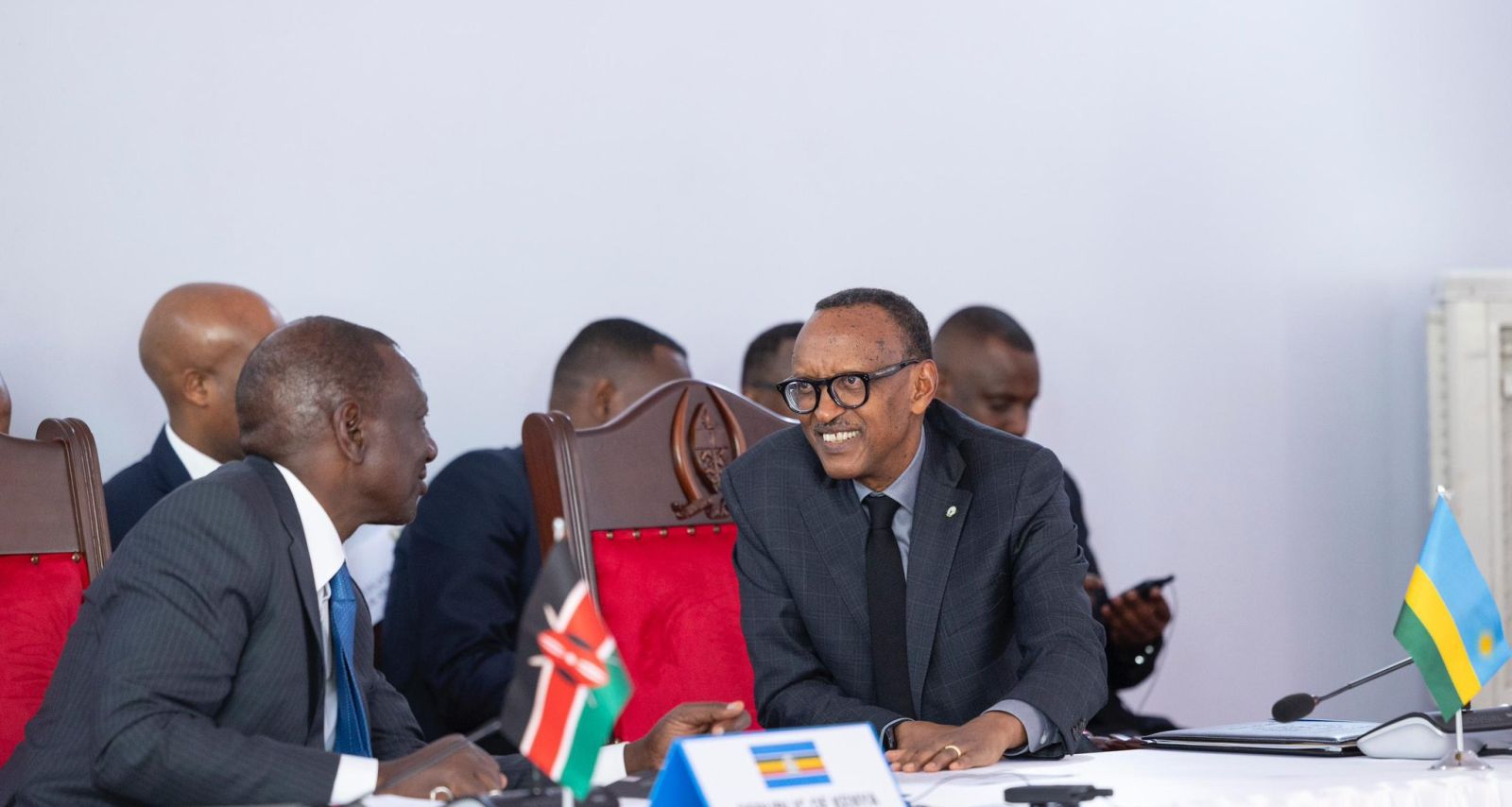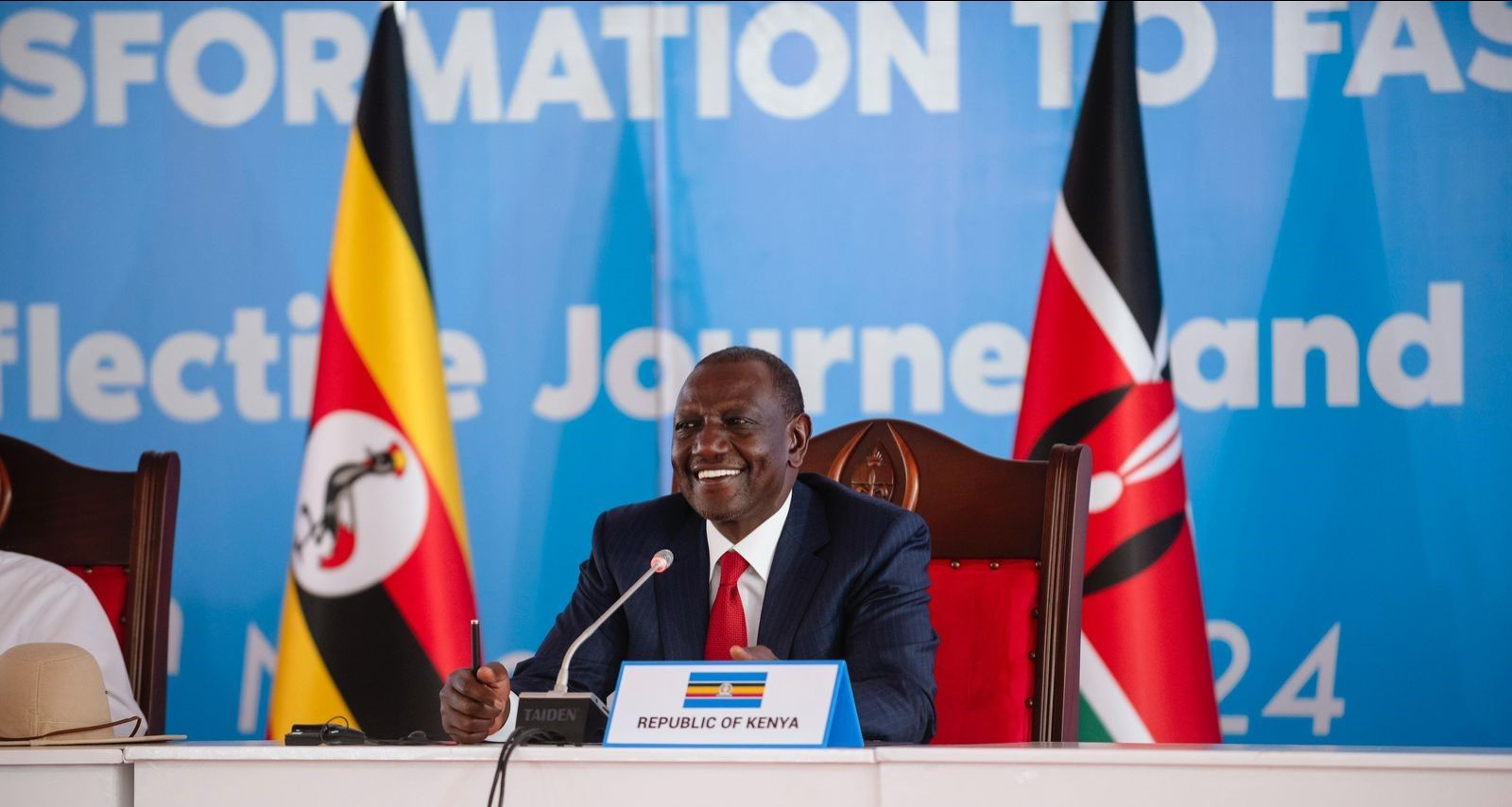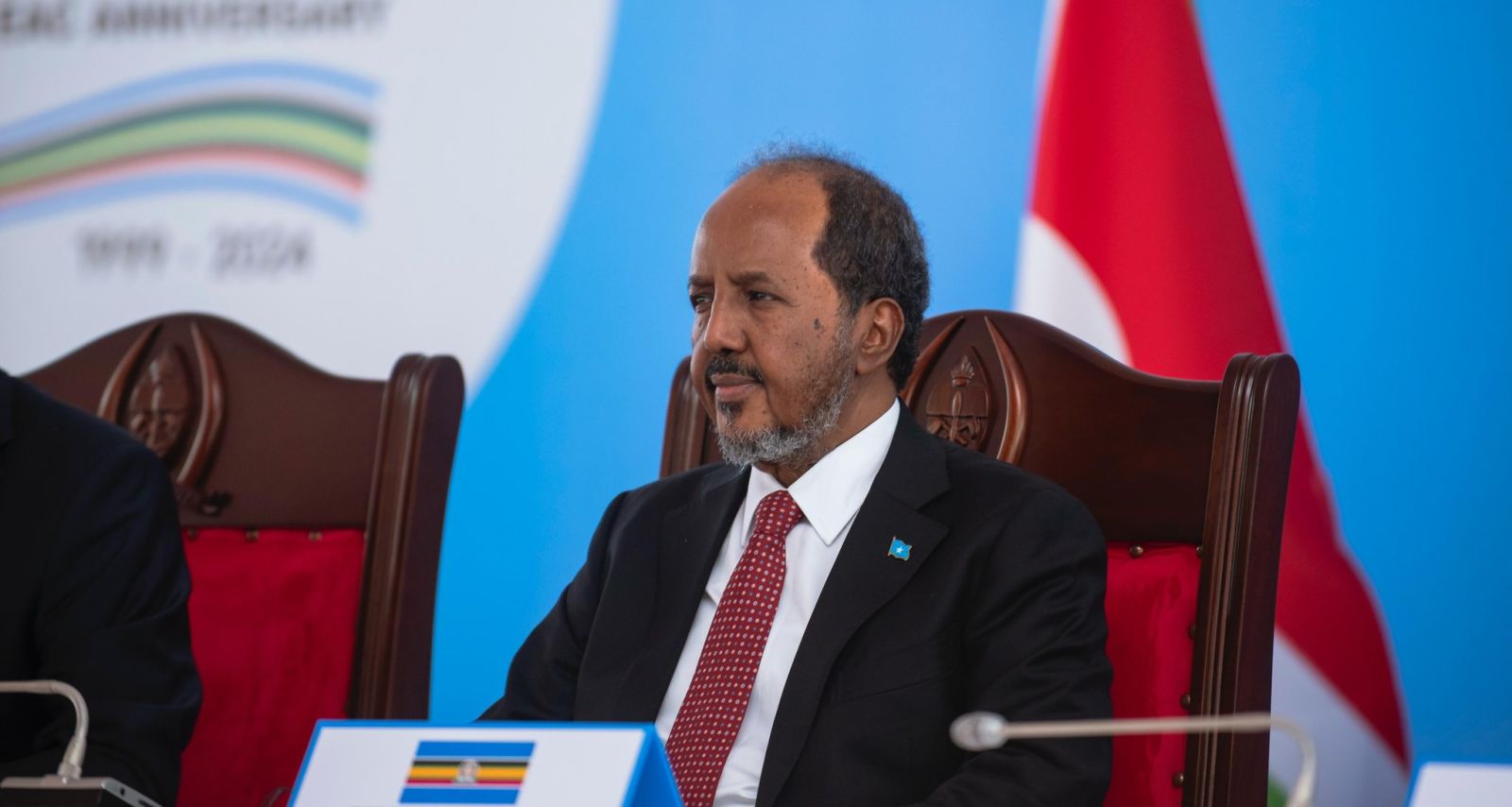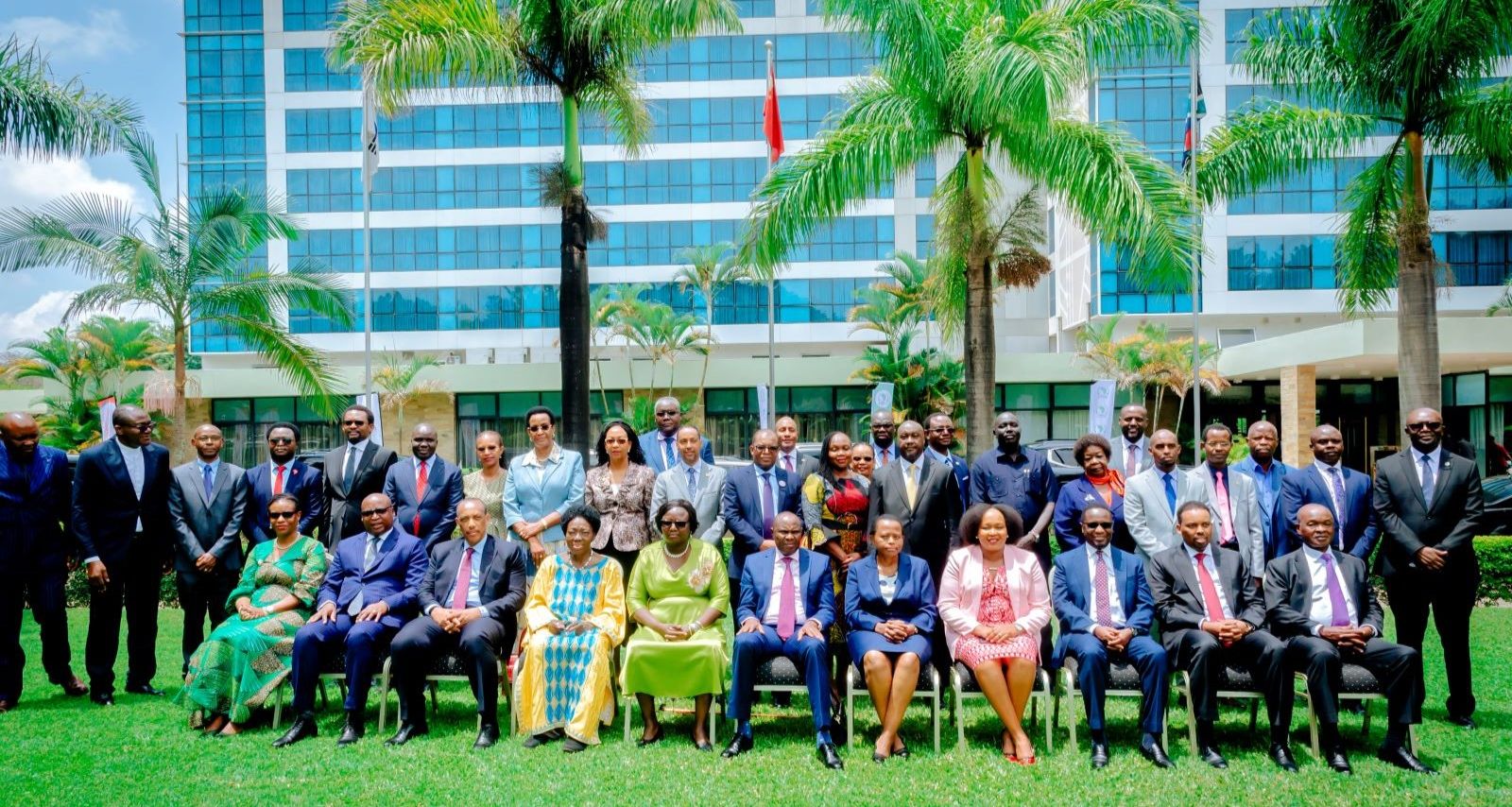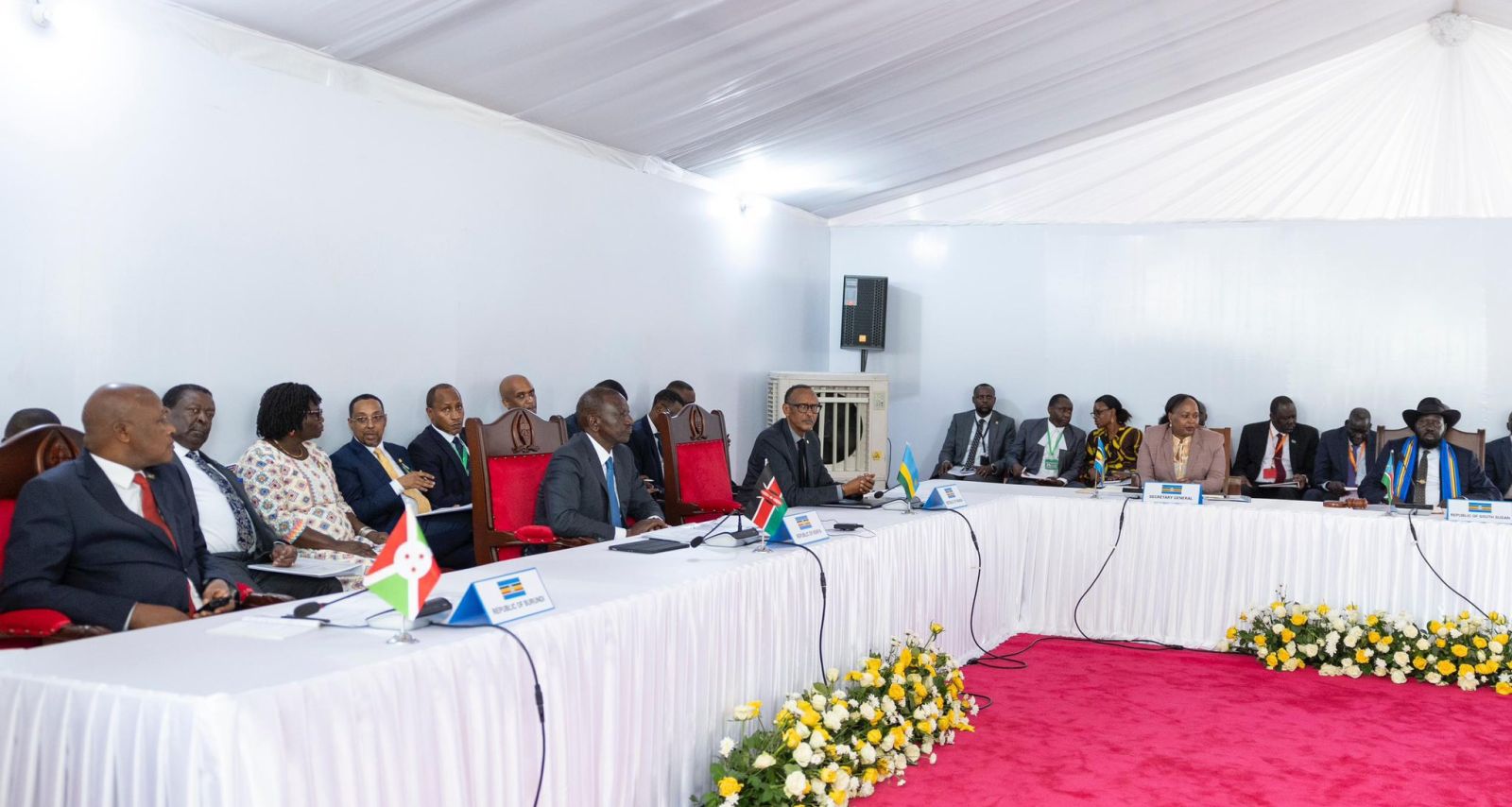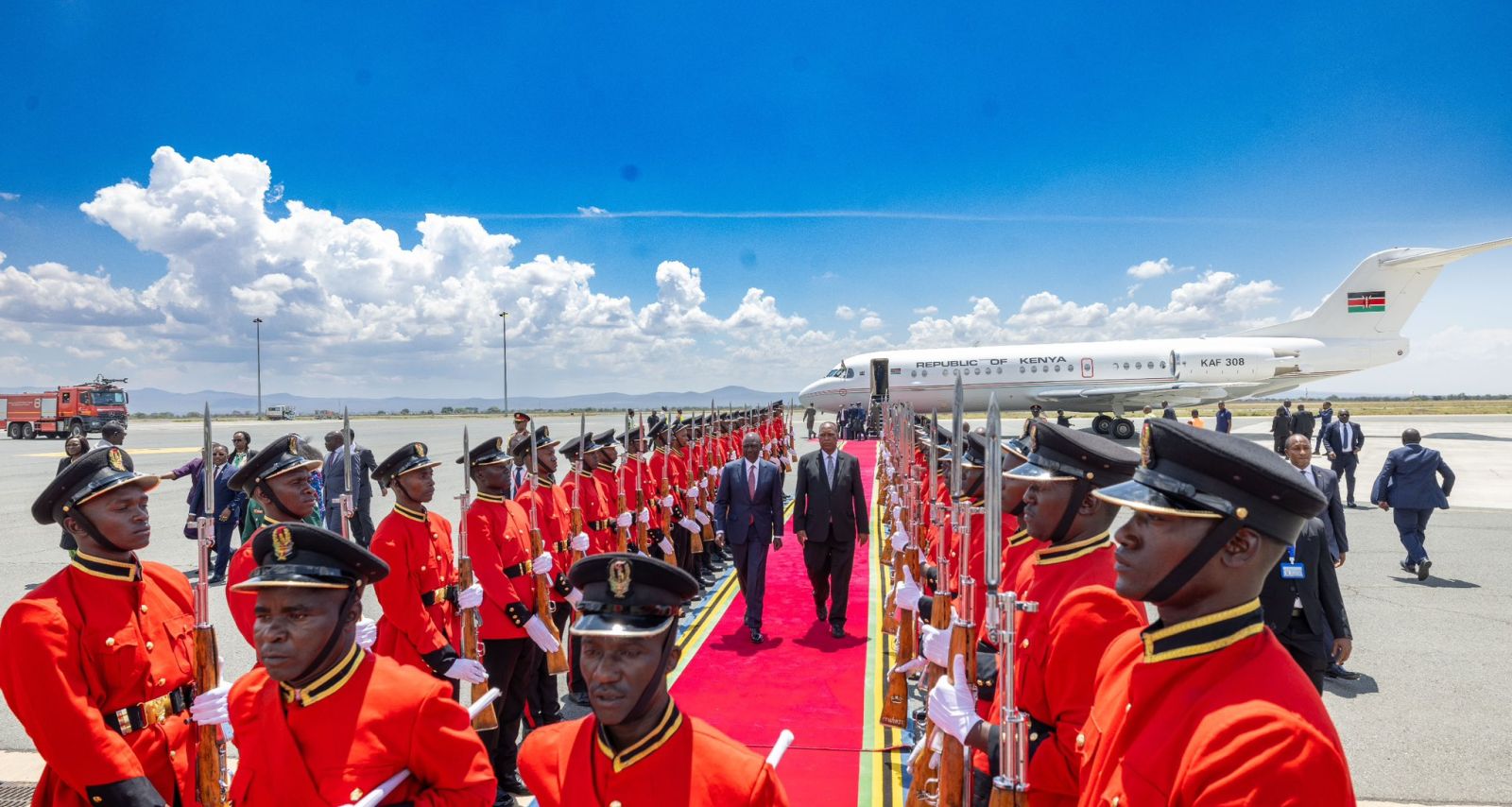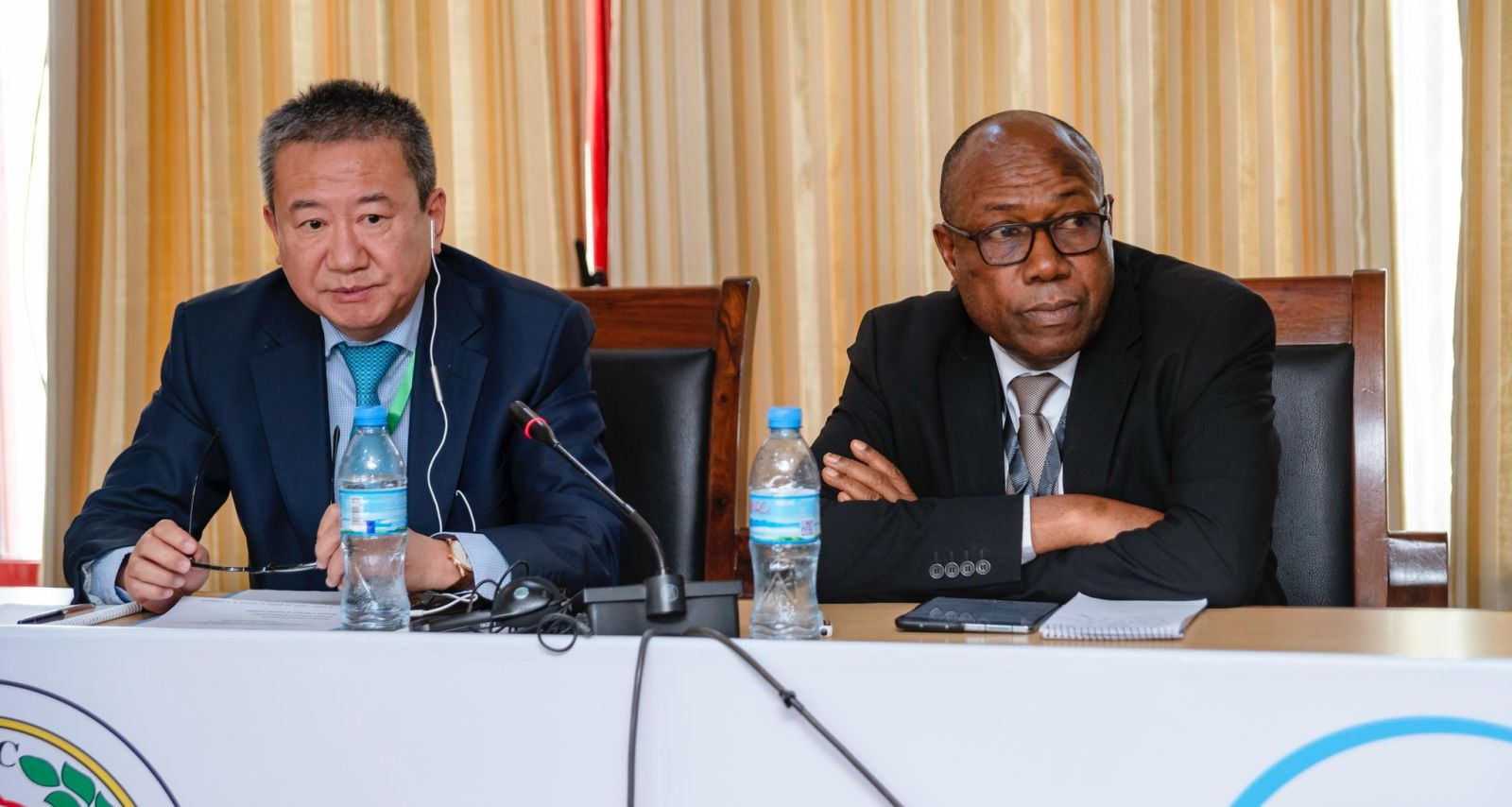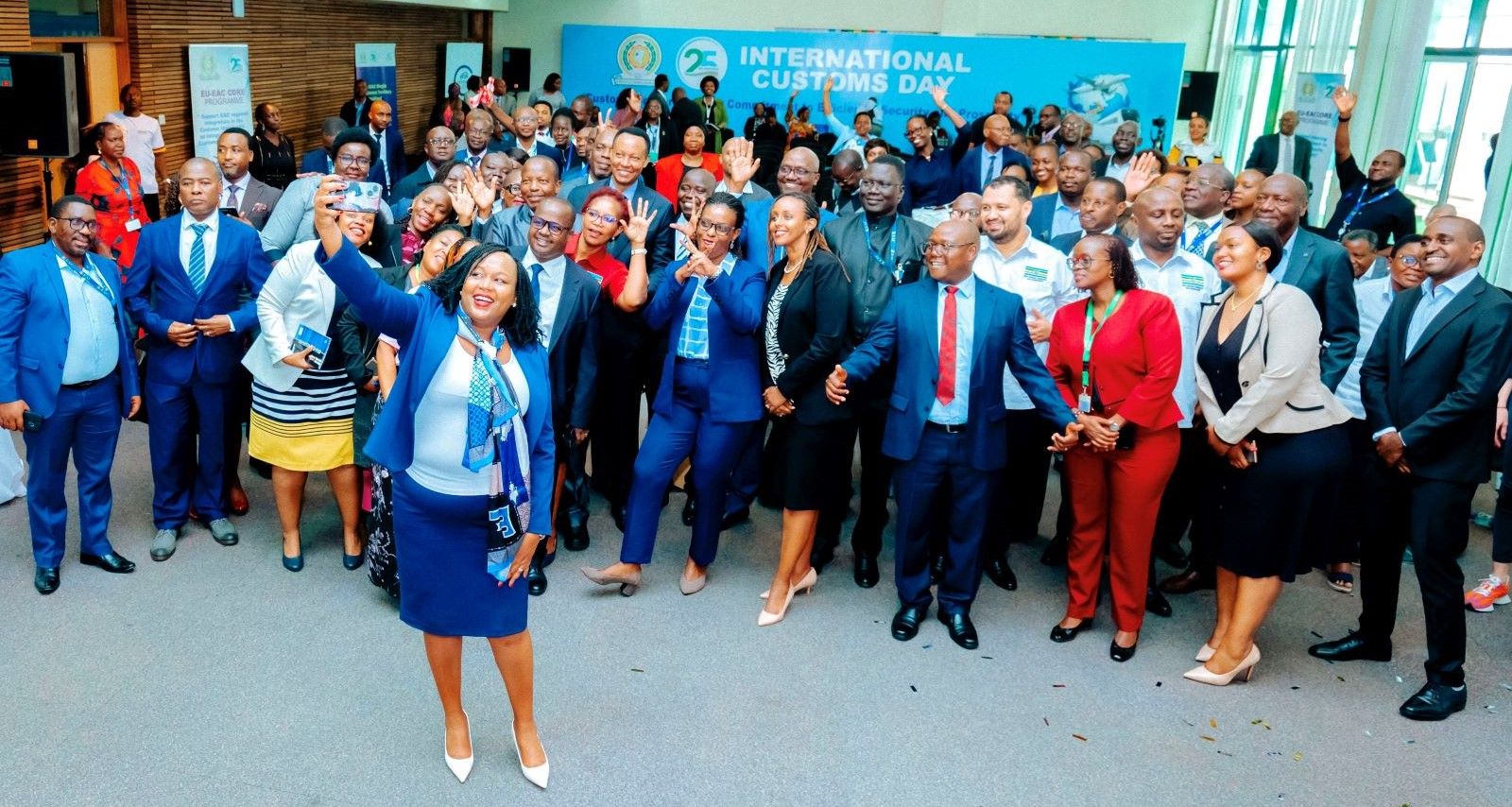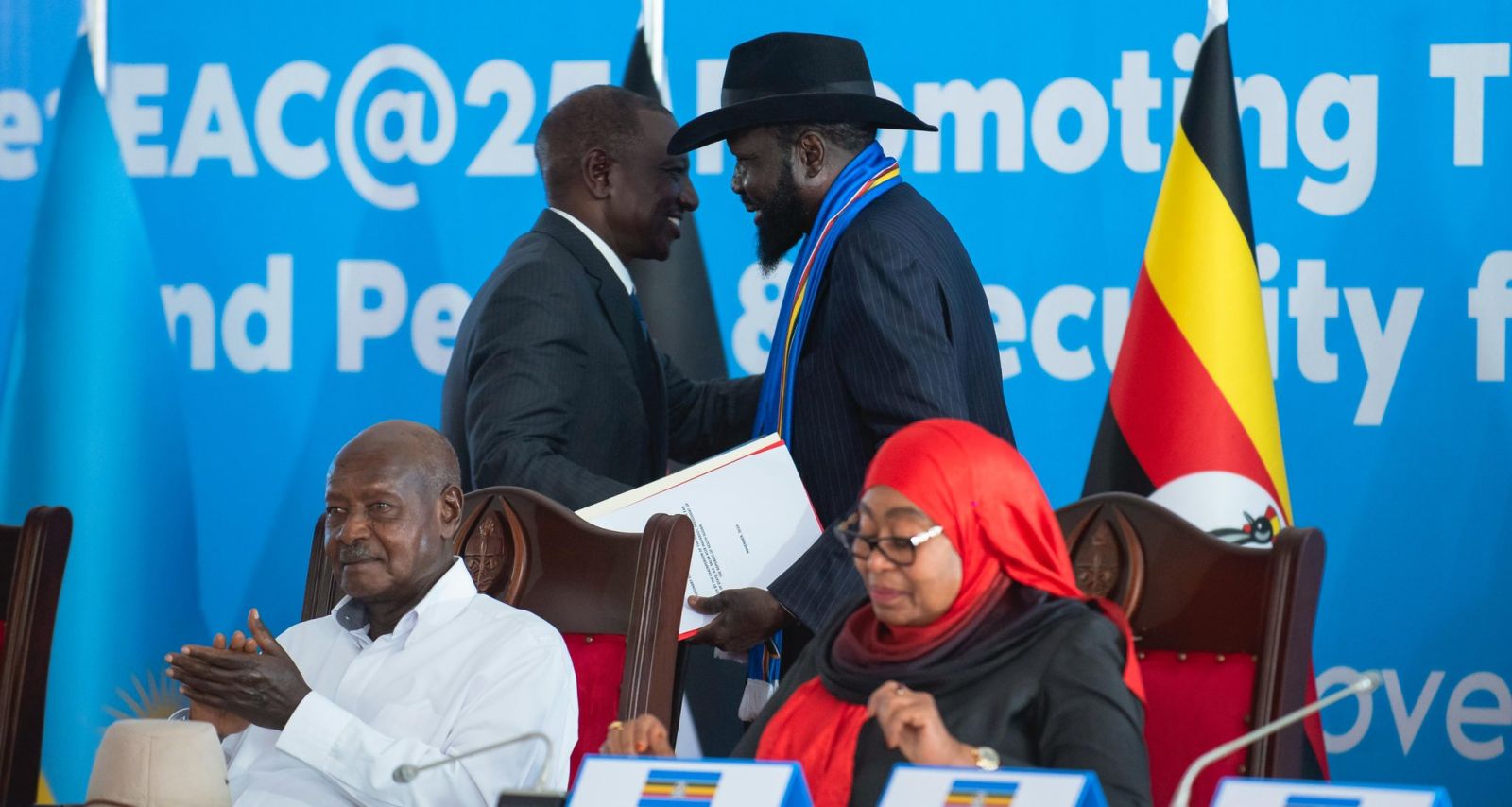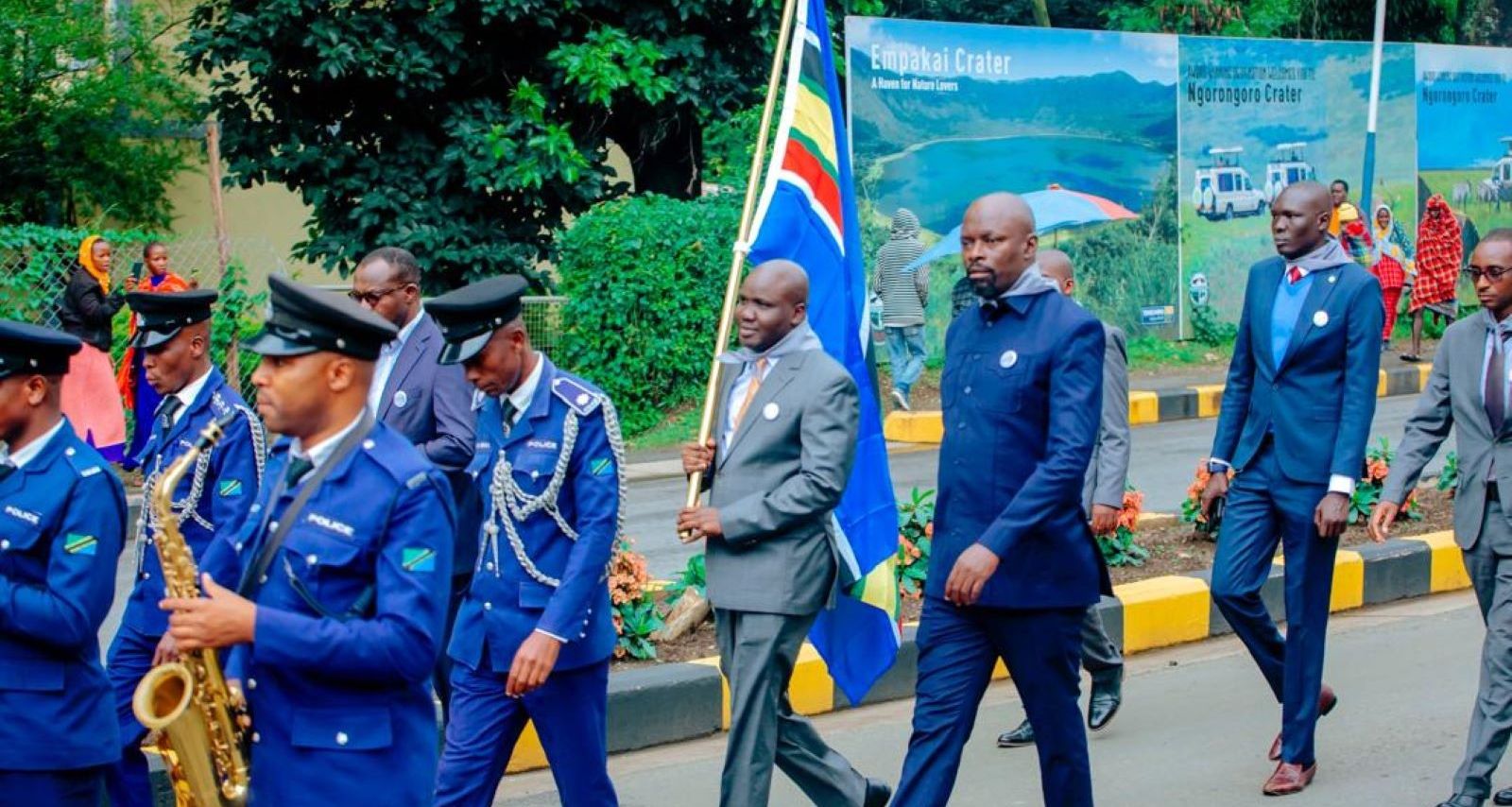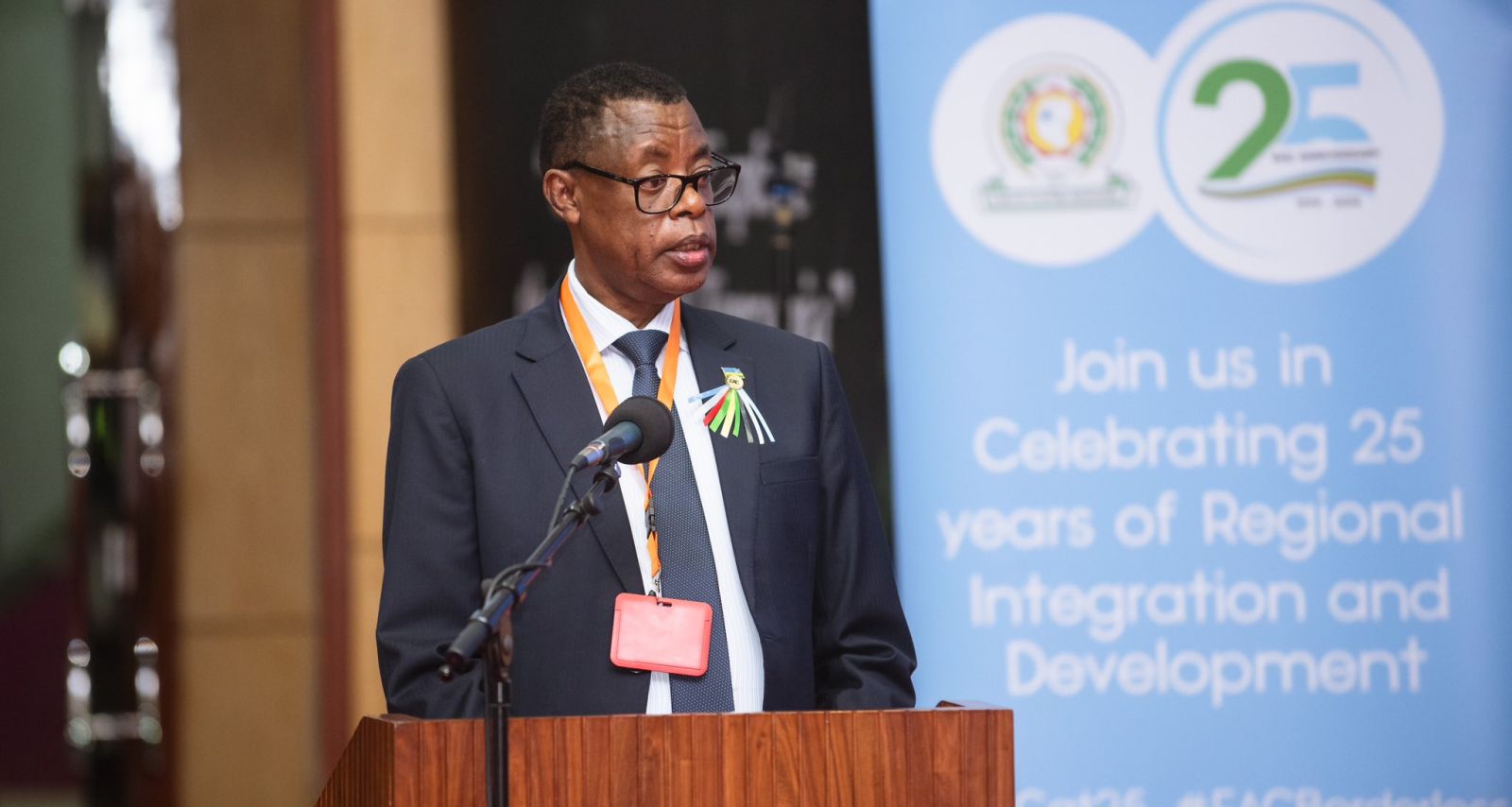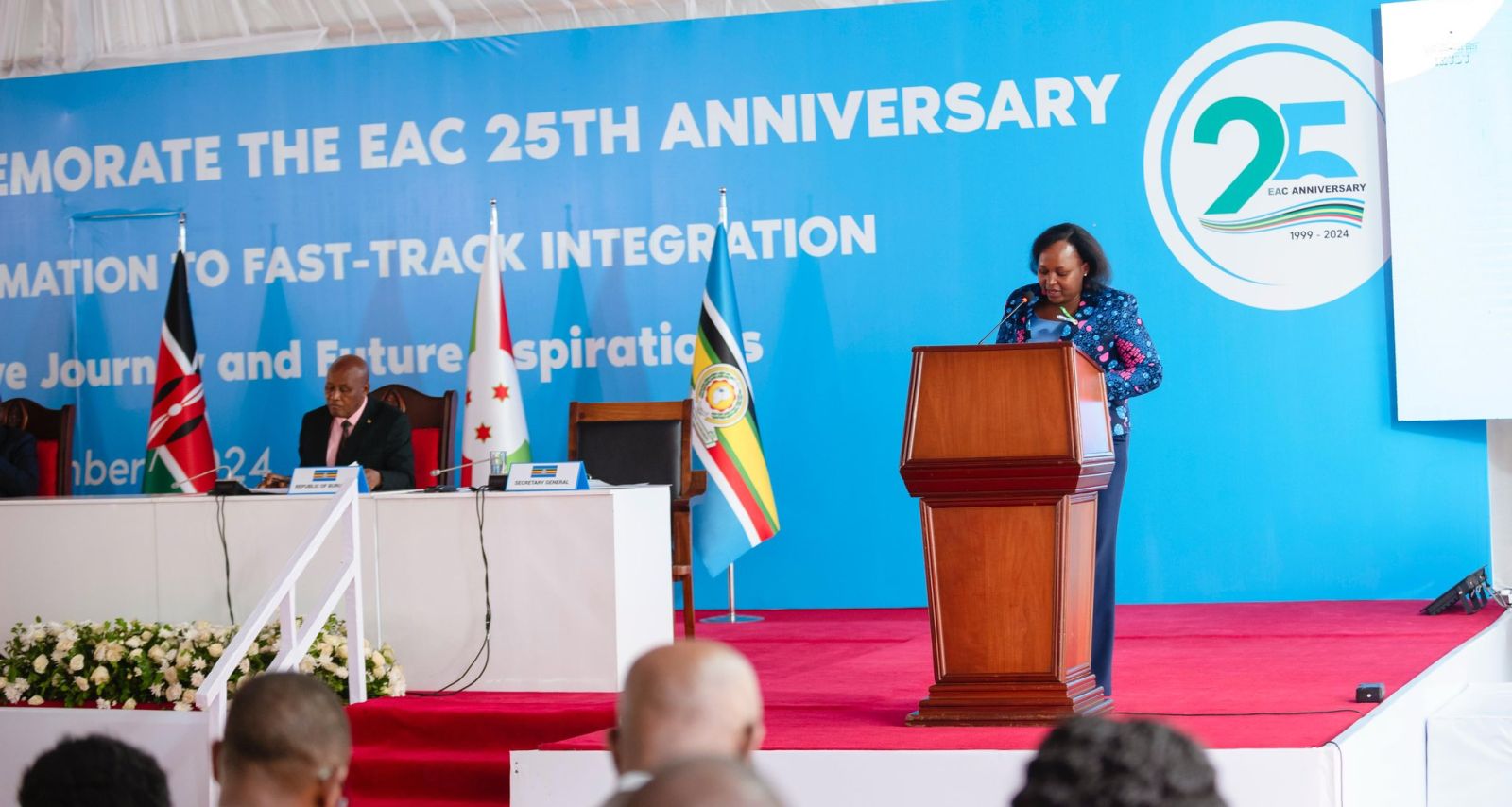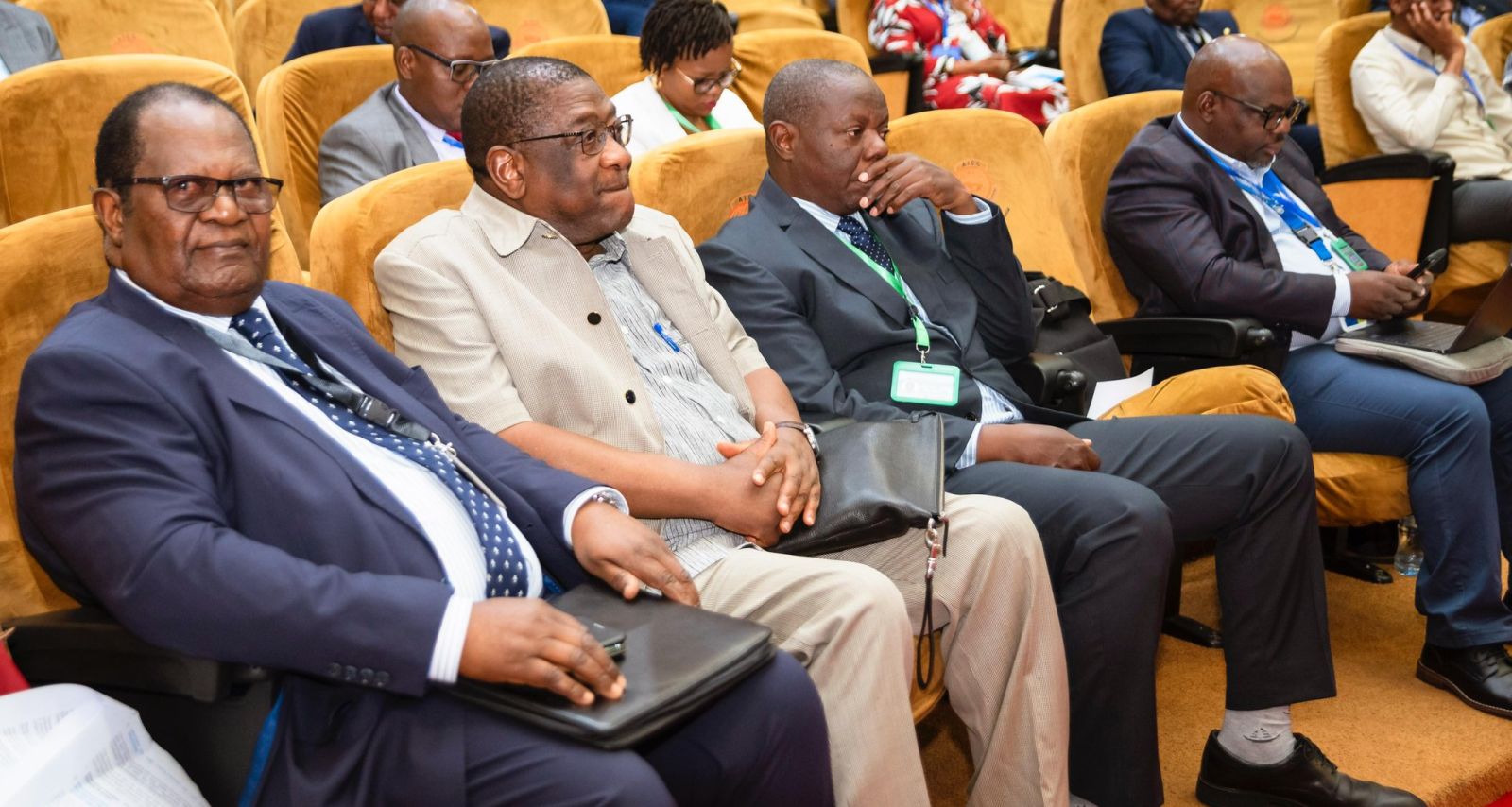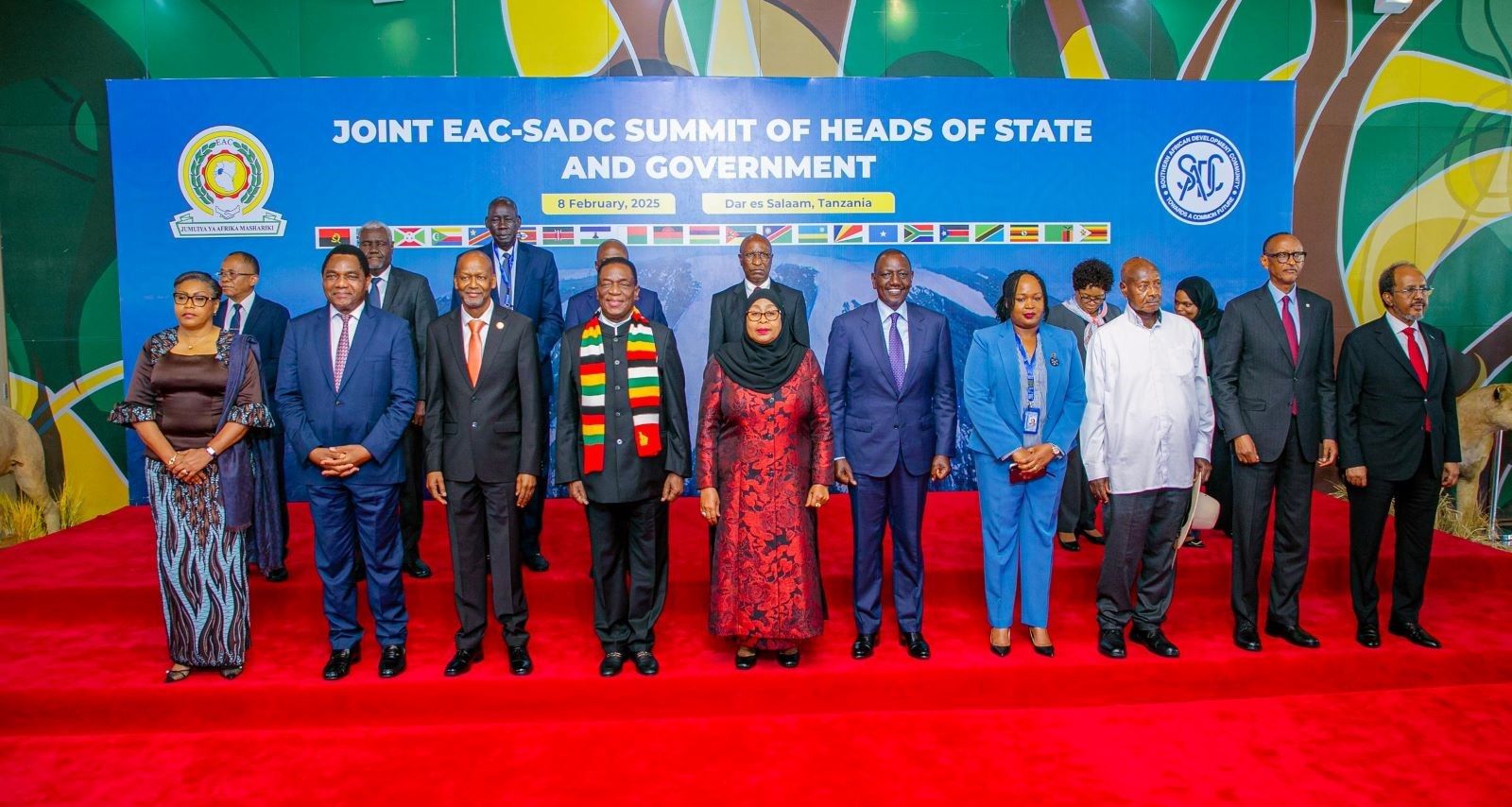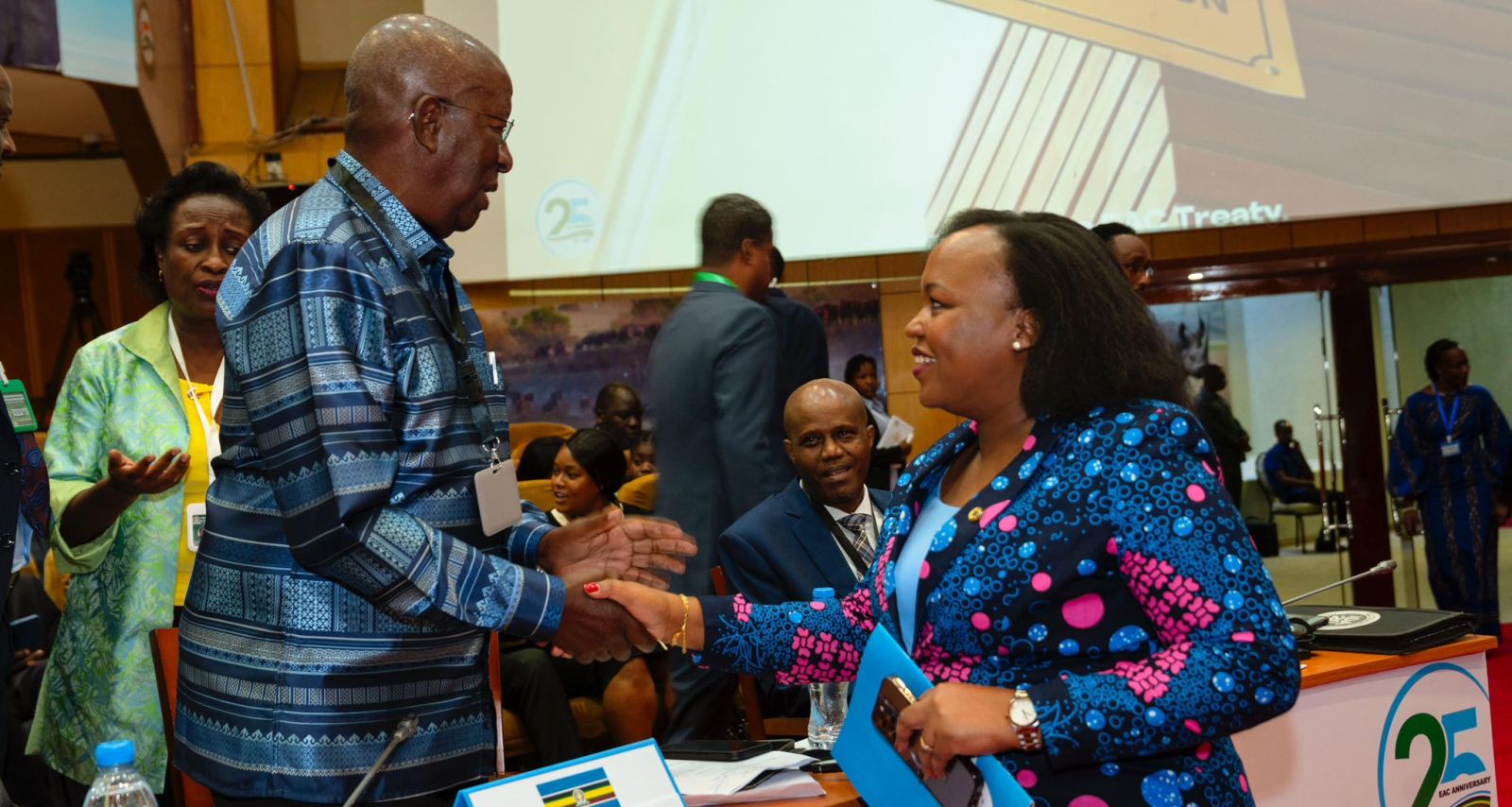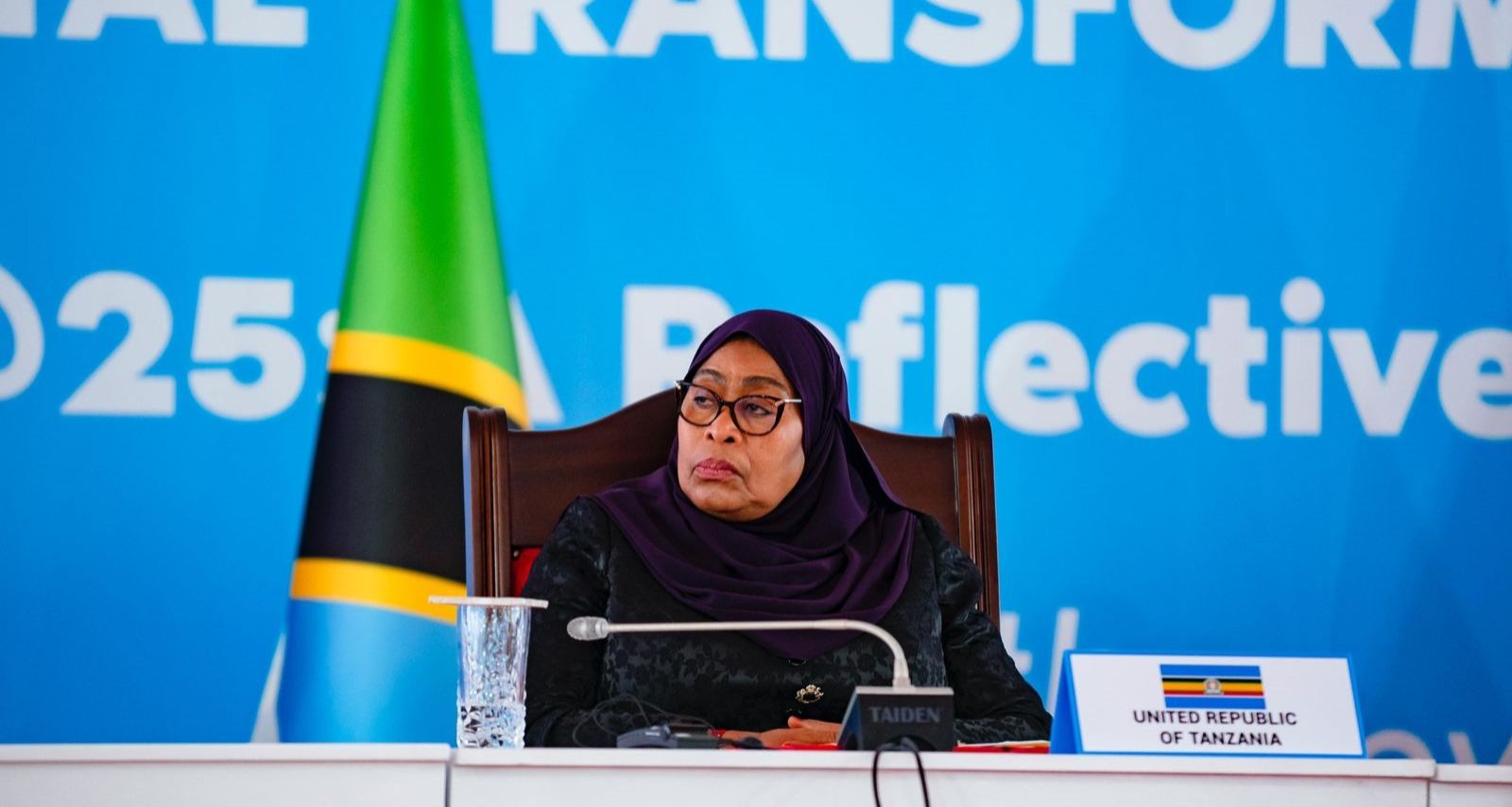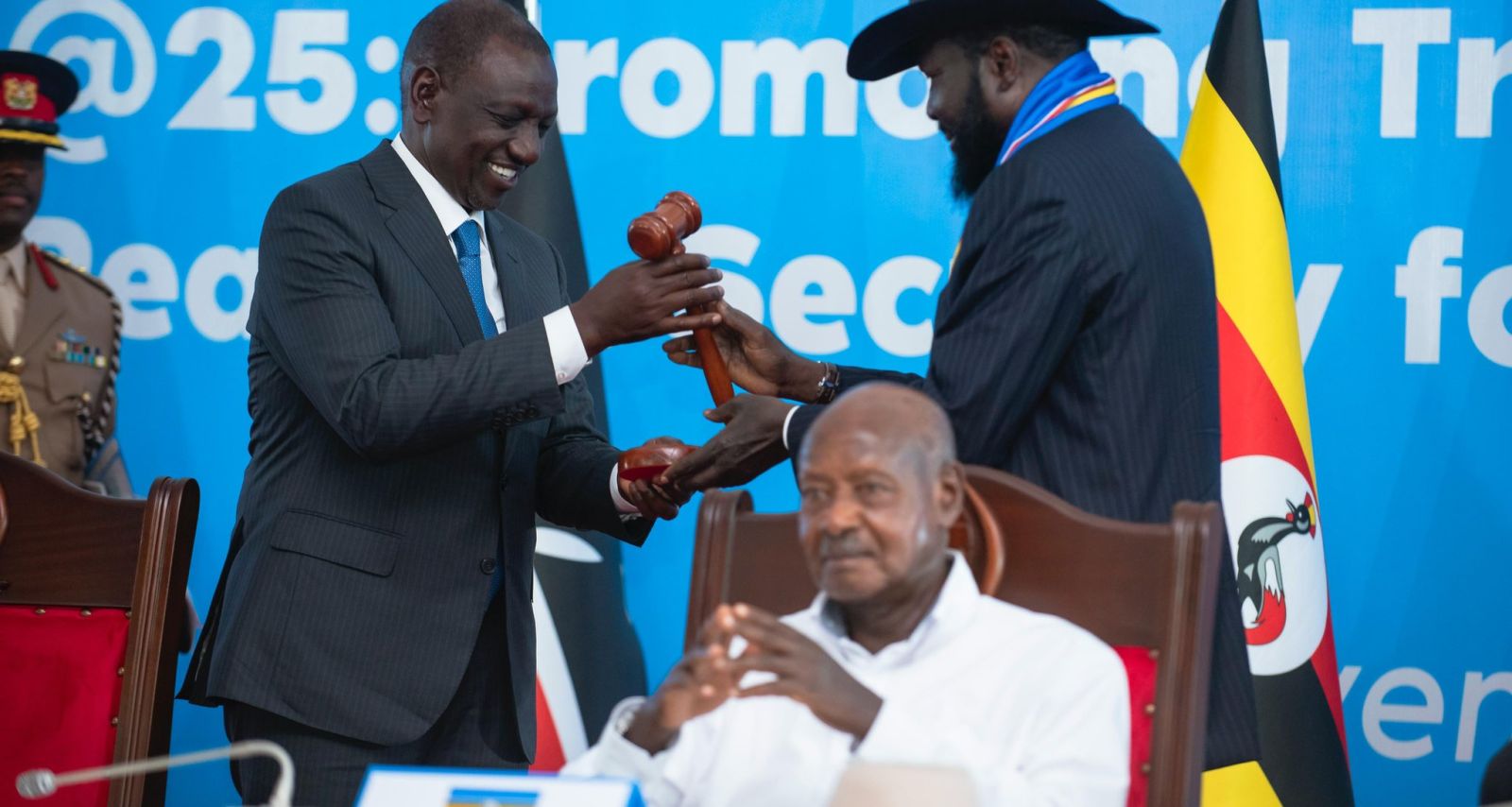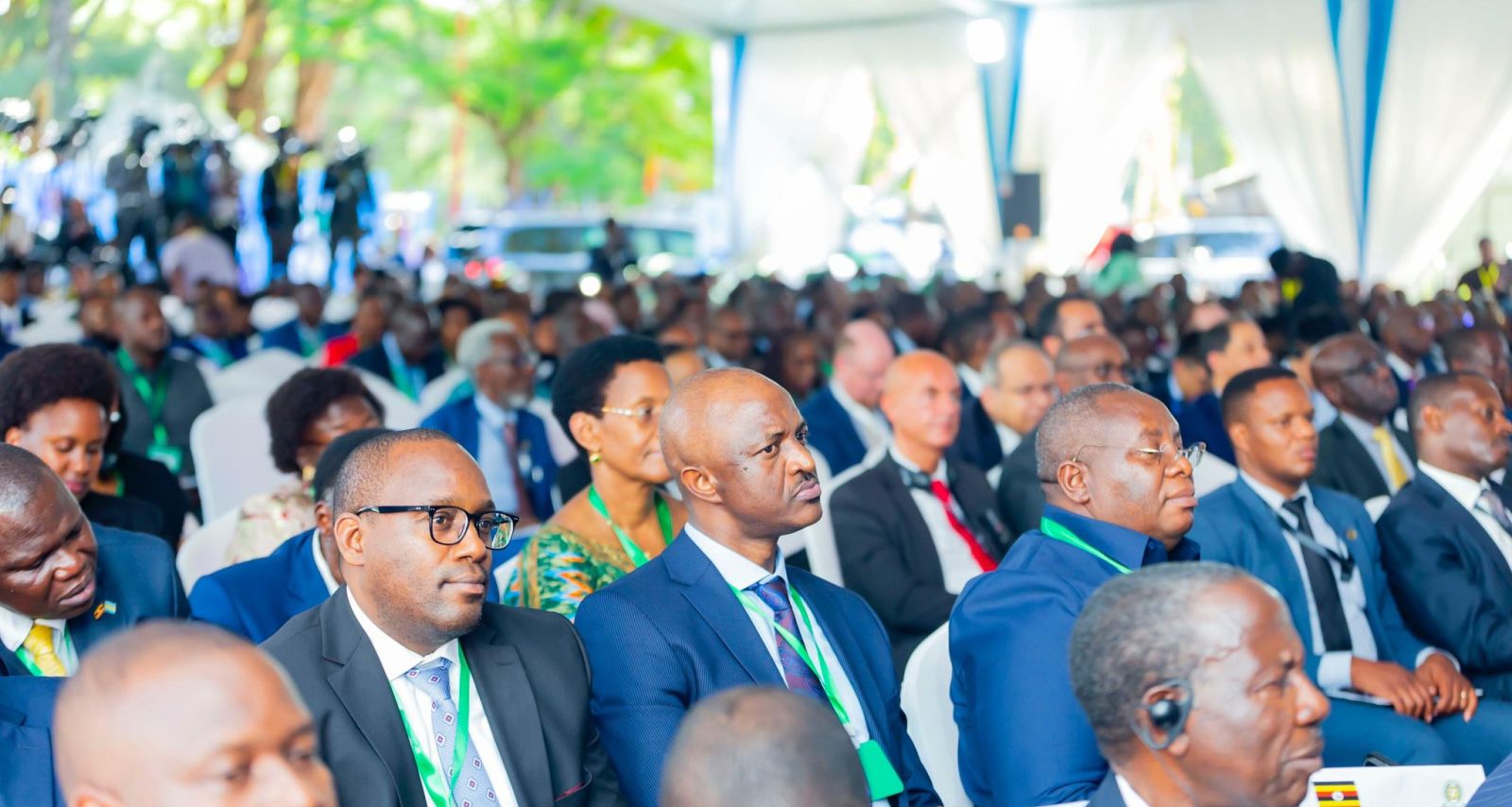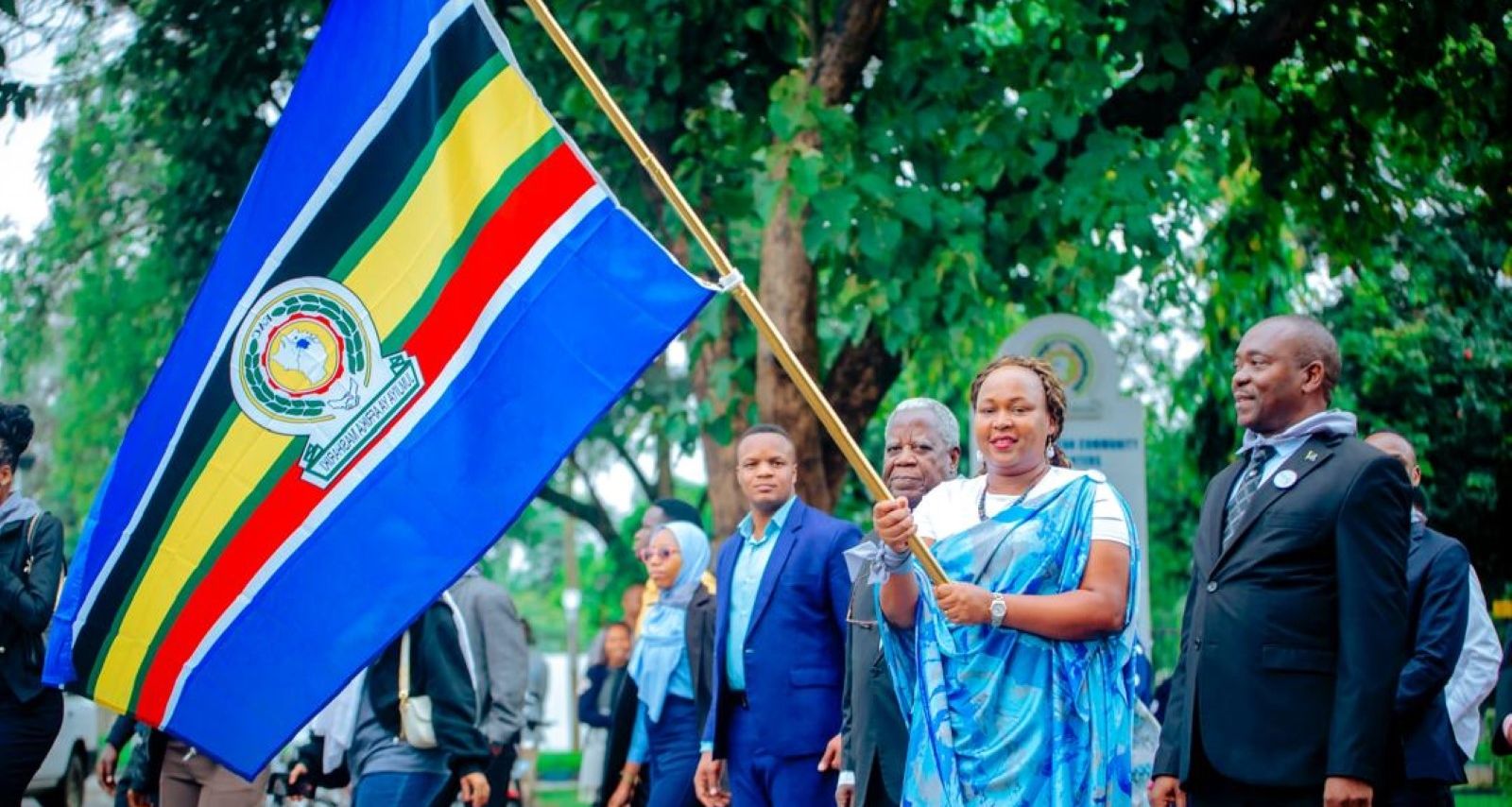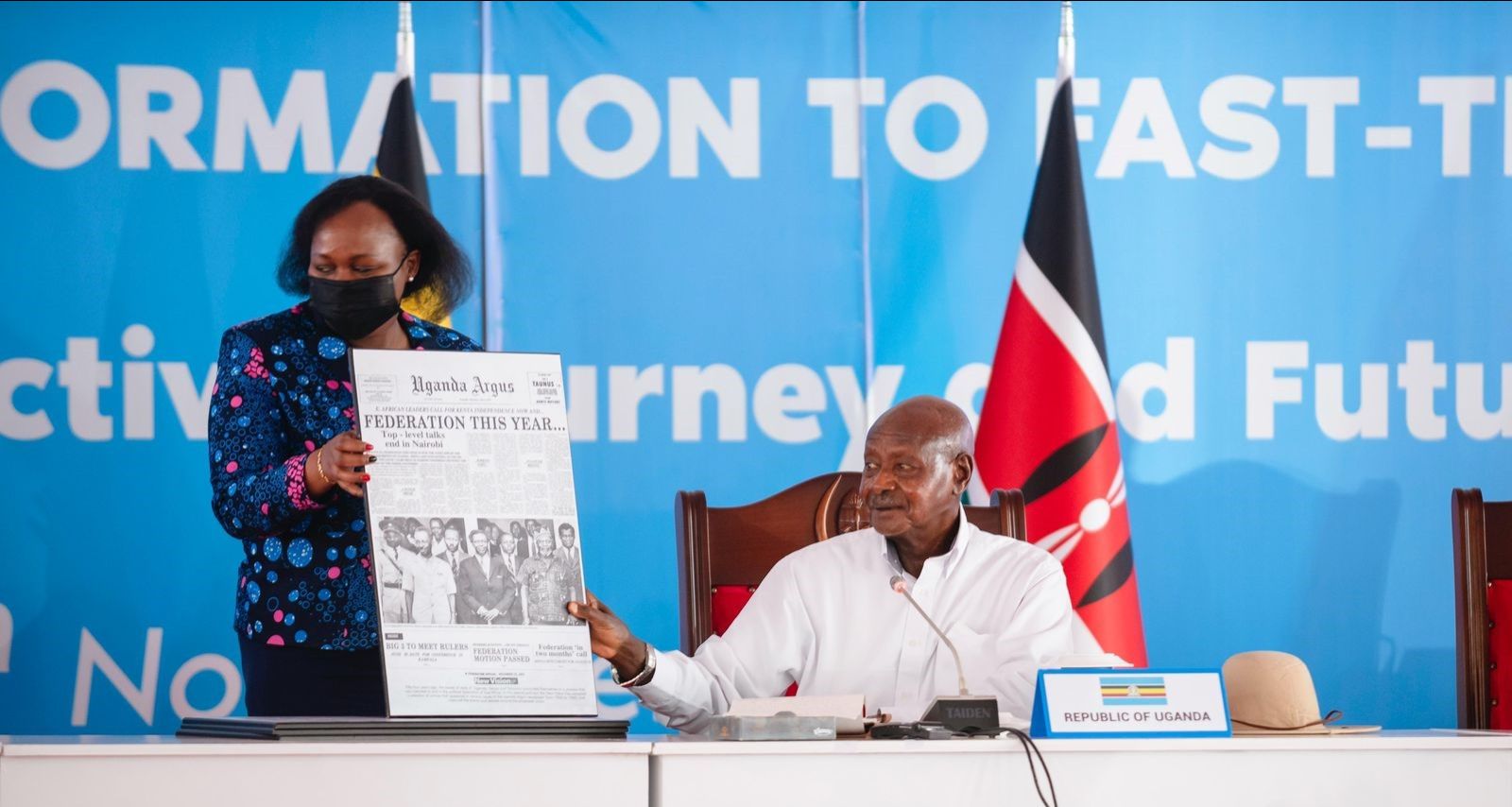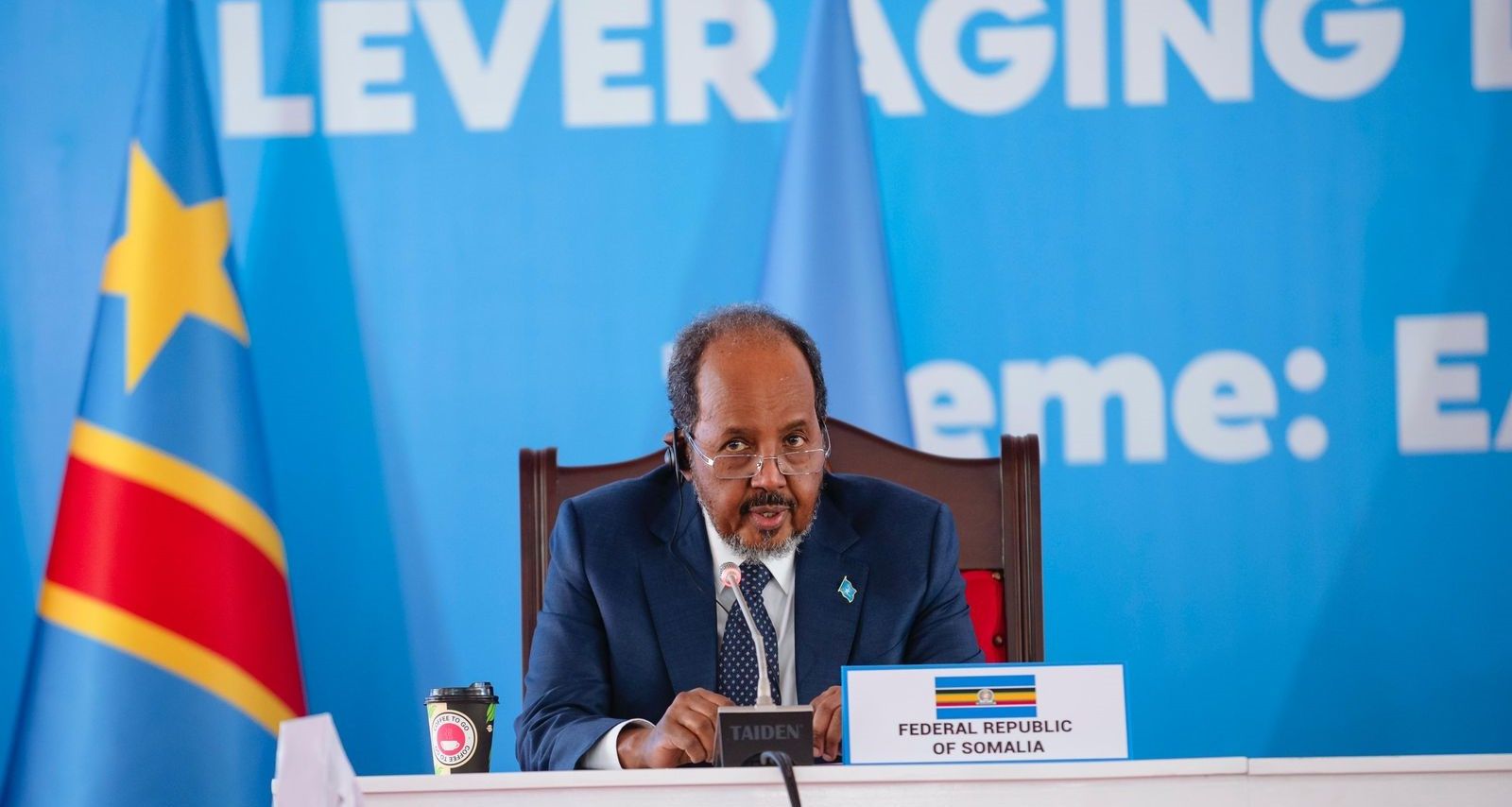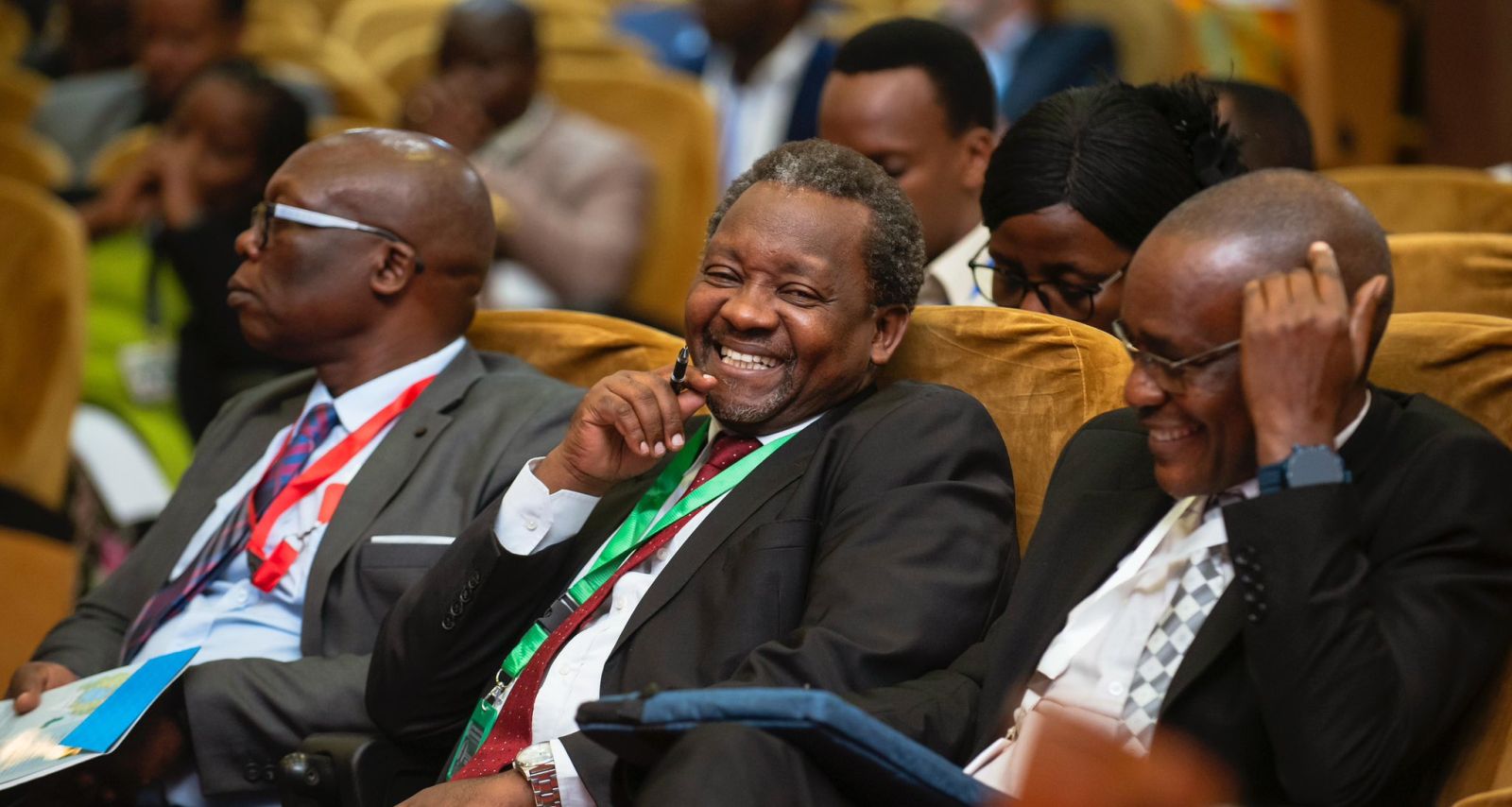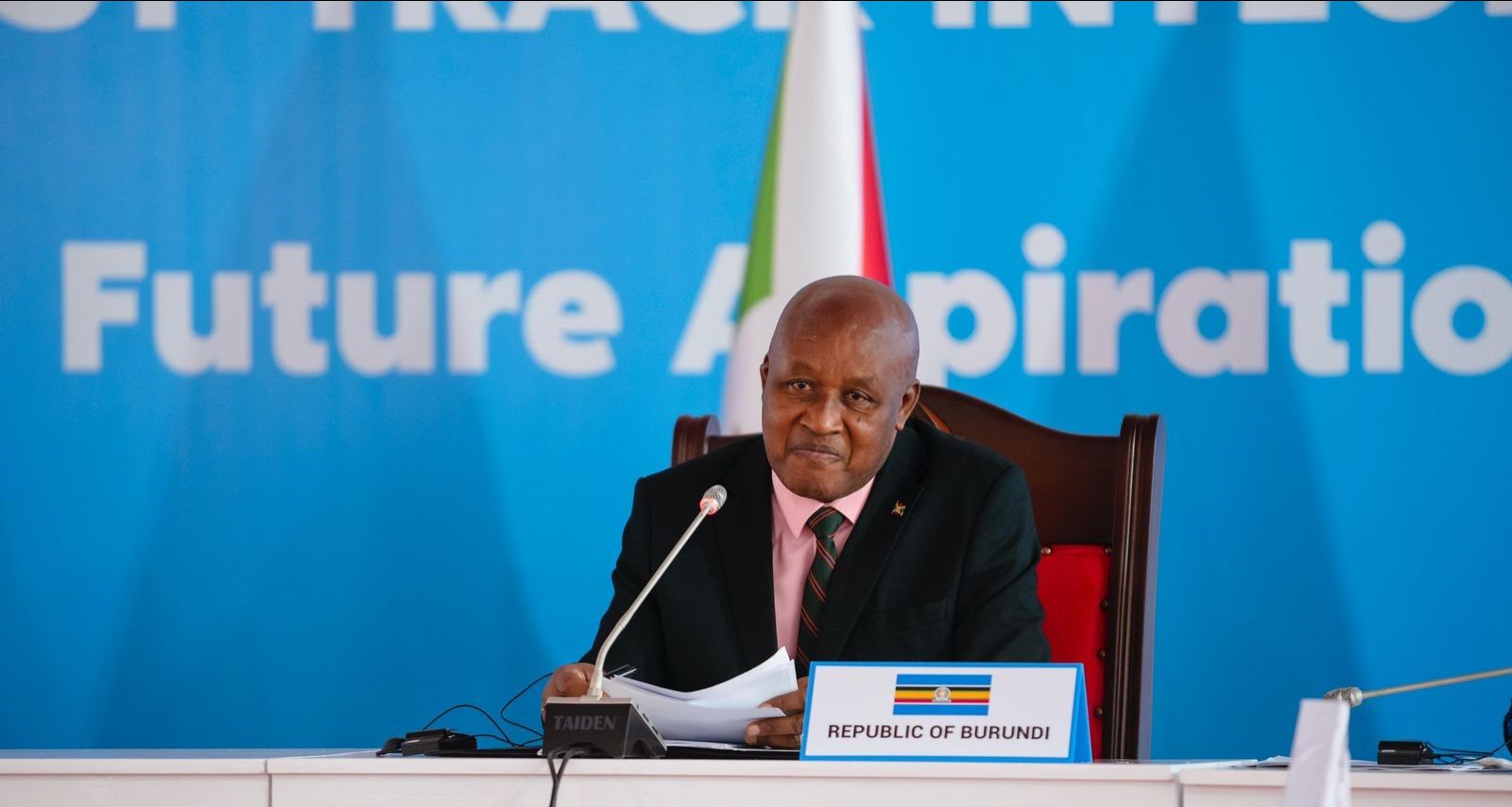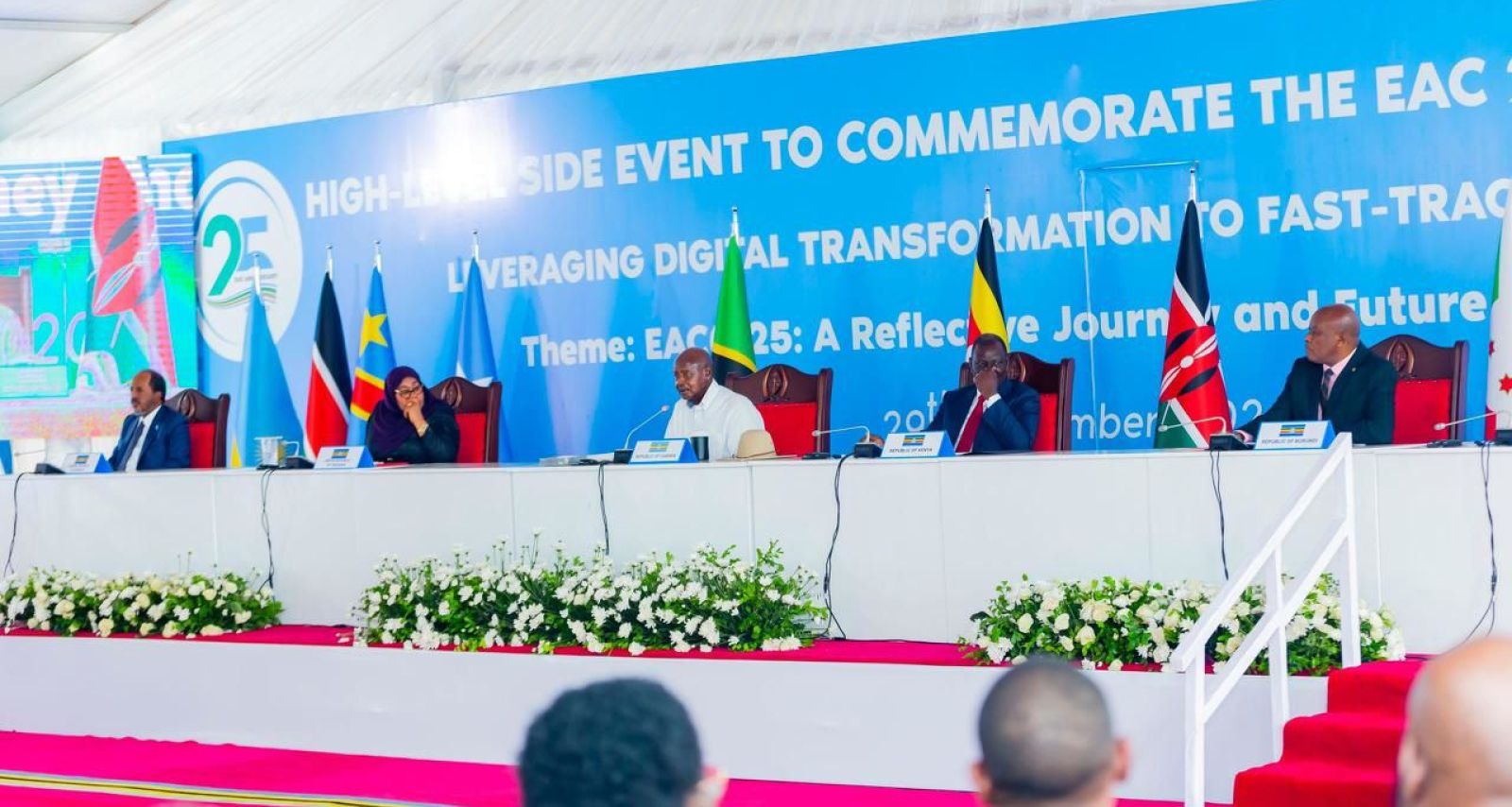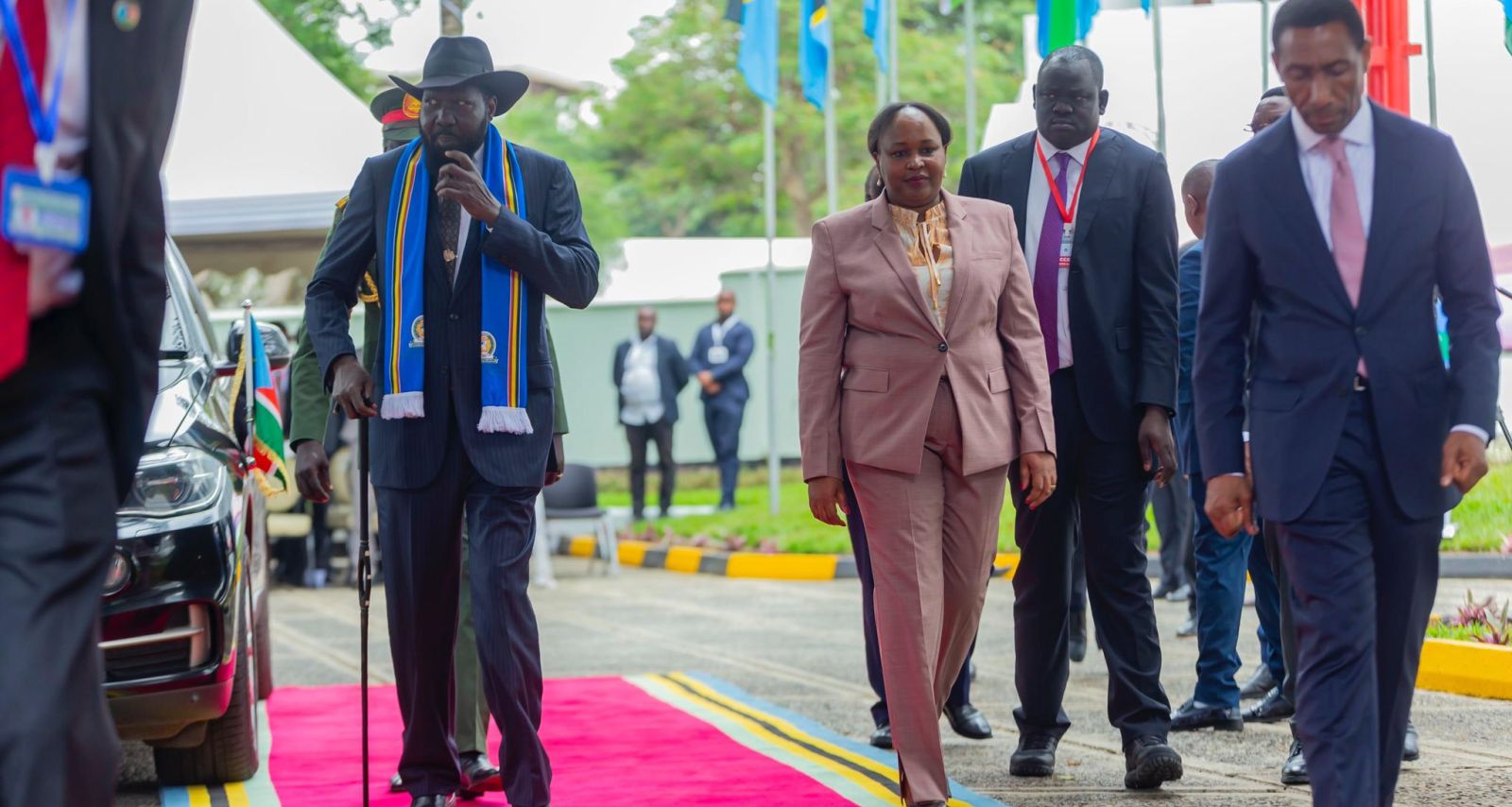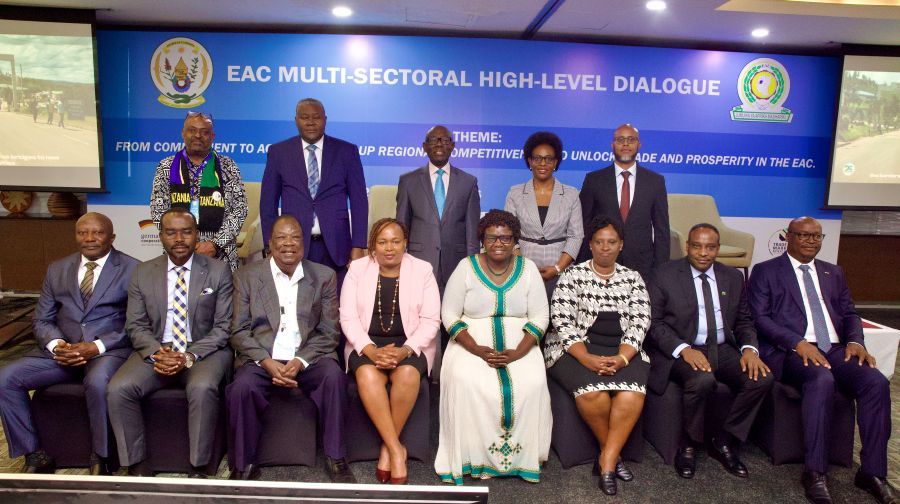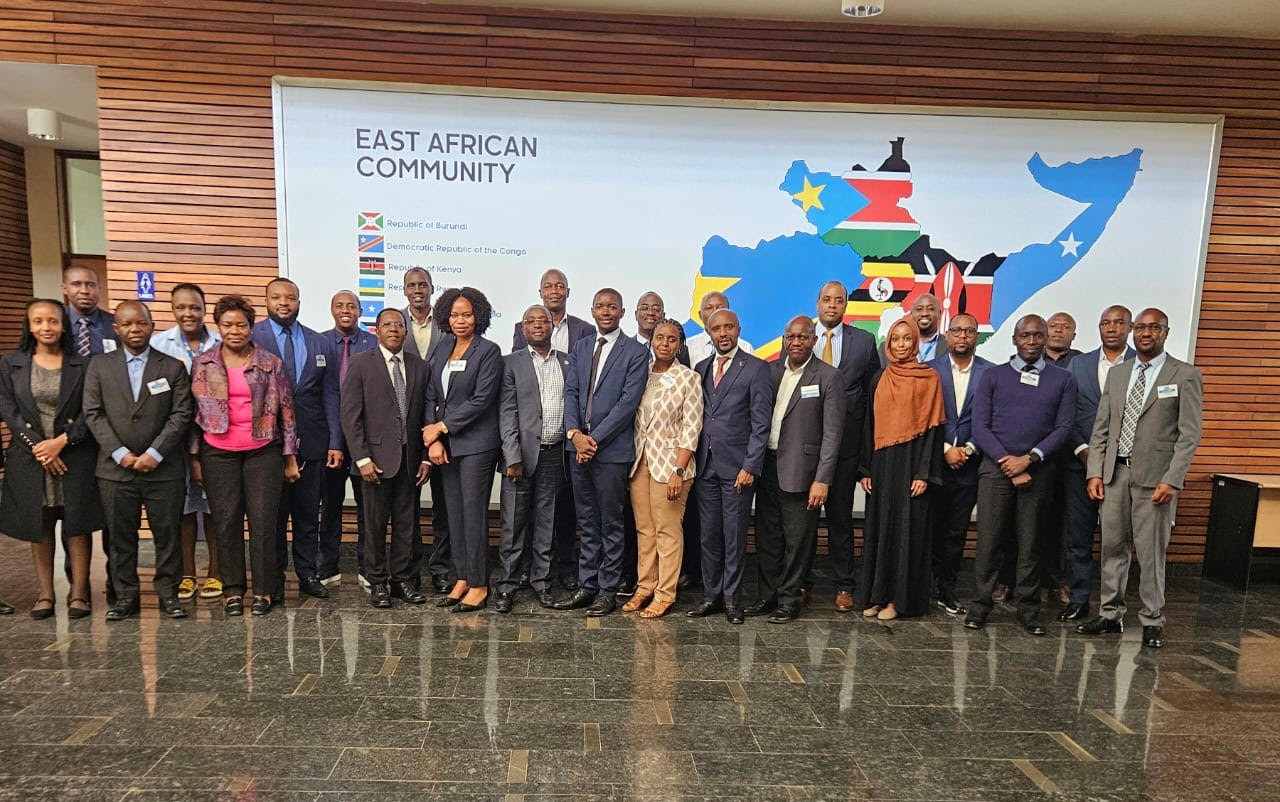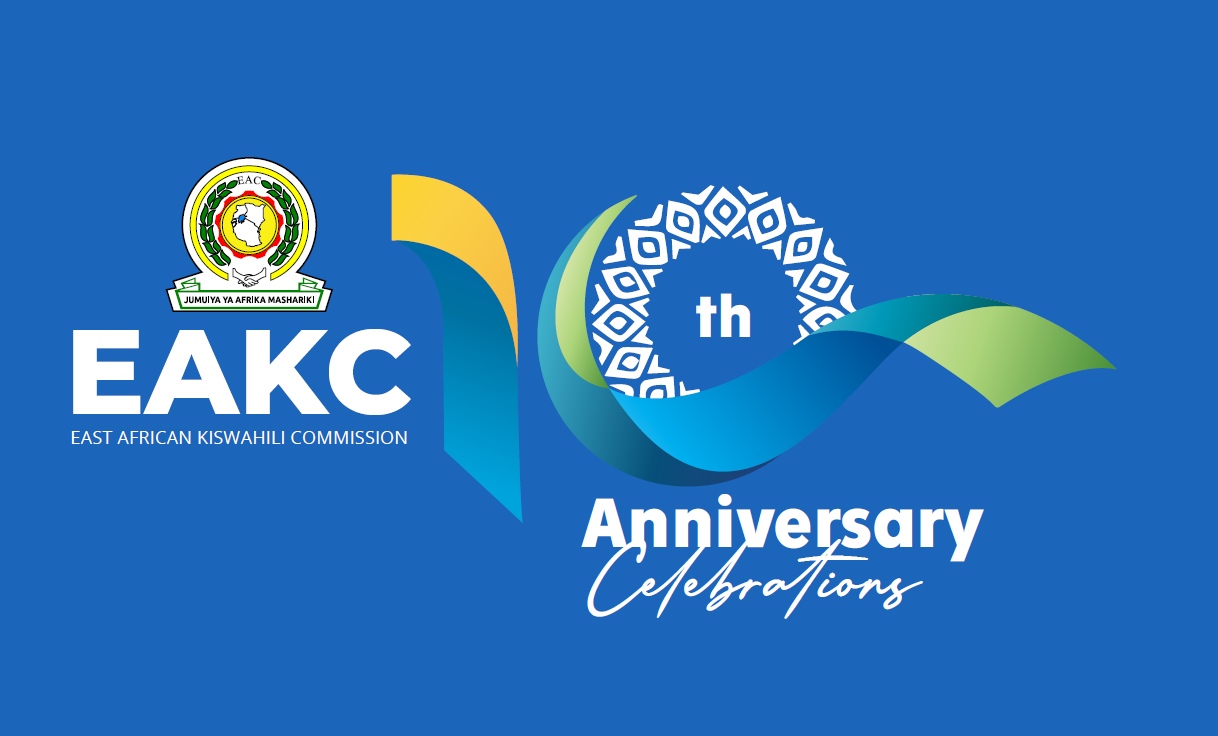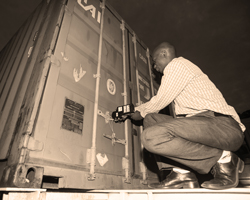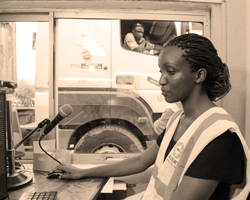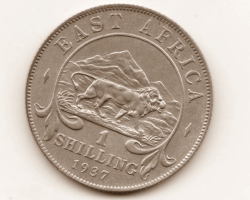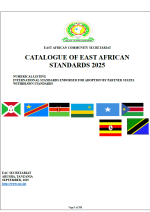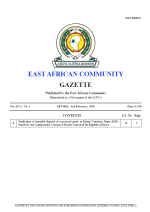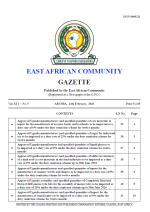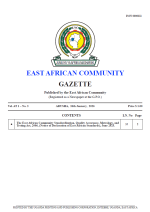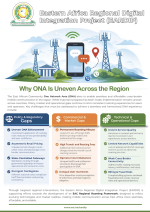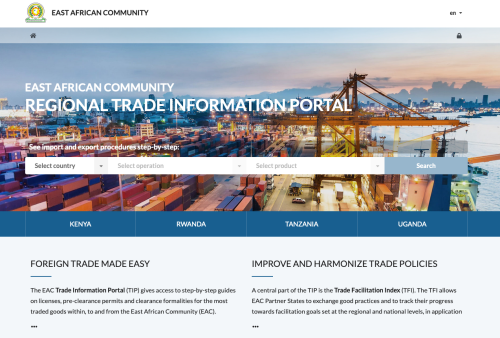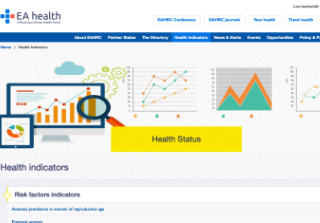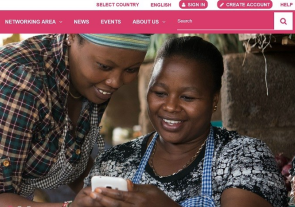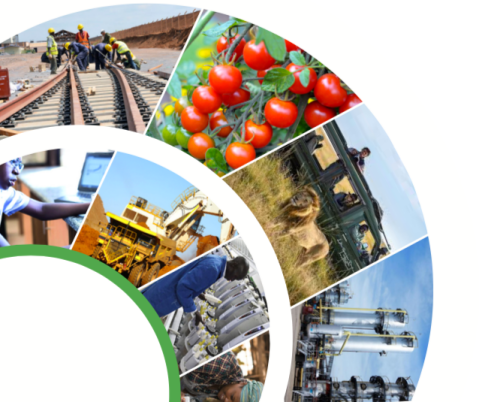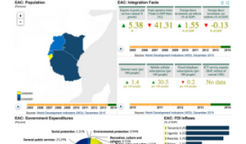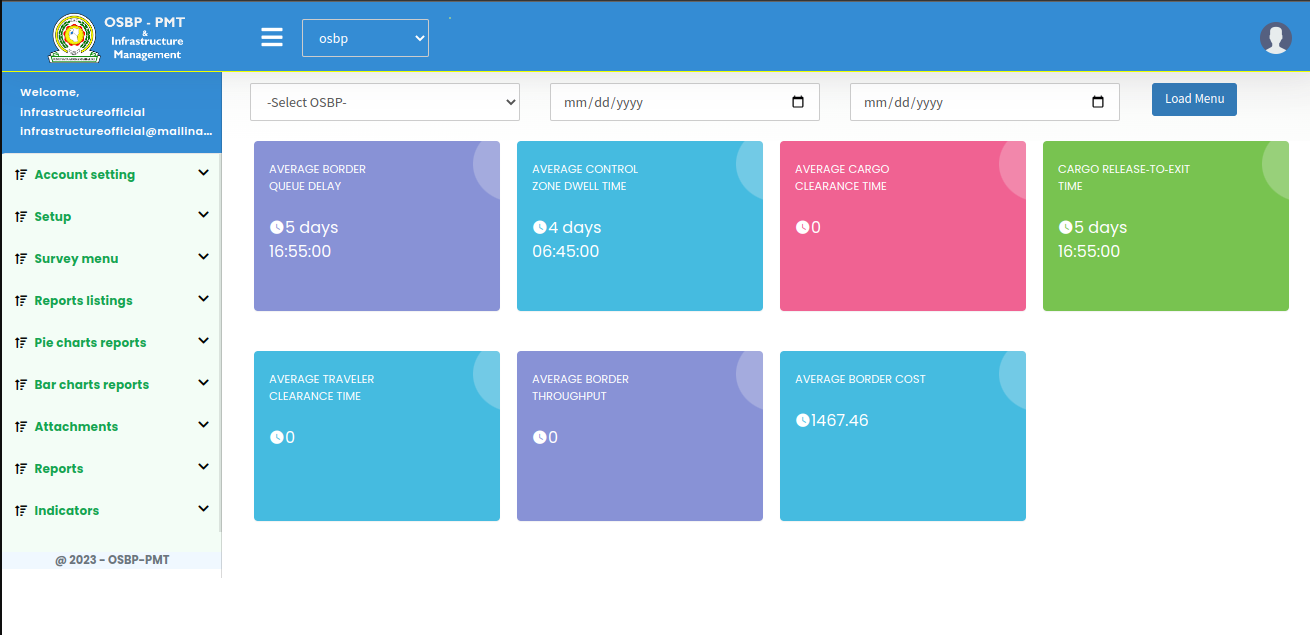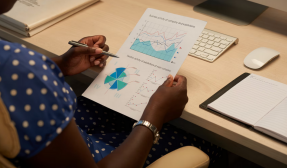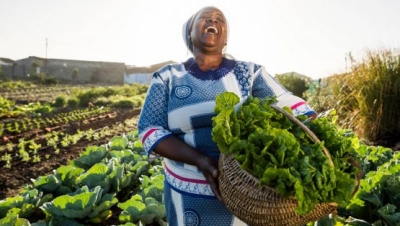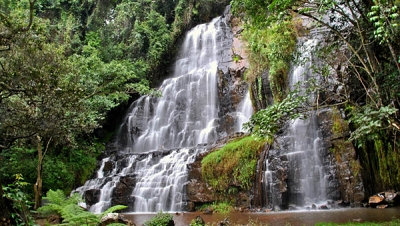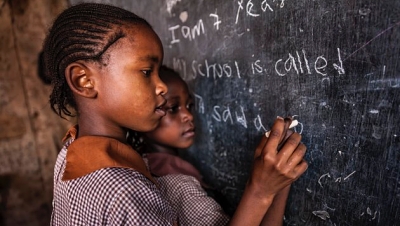Upcoming Events
- Statutory Audit of 5 EACS Projects Requiring Separate Audit Opinion (February 09, 2026 09:00)
- Hybrid Meeting to Review and Finalise the EAC Reproductive Maternal Newborn Child and Adolescent Health Strategic Plan. (February 20, 2026 08:36)
- KfW – EAC Meeting (February 23, 2026 09:00)
- National Training on Trade in Service to Rwanda (February 23, 2026 09:00)
- National Workshop on Data Analysis of International Trade in Services Statistics (February 23, 2026 09:00)
EAC Priorities 2022 - 2026
![]() Full Implementation of the Single Customs Territory (SCT).
Full Implementation of the Single Customs Territory (SCT).
![]() Enhancing domestication and implementation of regional commitments in line with the EAC Common Market Protocol
Enhancing domestication and implementation of regional commitments in line with the EAC Common Market Protocol
![]() Attainment of the EAC Single Currency
Attainment of the EAC Single Currency
![]() Strengthening regional peace, security, and good governance
Strengthening regional peace, security, and good governance
![]() Development of quality multi-dimensional strategic Infrastructure
Development of quality multi-dimensional strategic Infrastructure
![]() Institutional transformation of all EAC Organs and Institutions
Institutional transformation of all EAC Organs and Institutions
![]() Increasing visibility of EAC, stakeholder knowledge and awareness
Increasing visibility of EAC, stakeholder knowledge and awareness
Latest Documents
EAC at A Glance
The East African Community (EAC) is a regional intergovernmental organisation of eight (8) Partner States, comprising the Republic of Burundi, Democratic Republic of Congo, Republic of Kenya, Republic of Rwanda, Federal Republic of Somalia, Republic of South Sudan, Republic of Uganda and United Republic of Tanzania, with its headquarters in Arusha, Tanzania.
The Federal Republic of Somalia was admitted into the EAC bloc on 24th November, 2023 and became a full member on 4th March, 2024.
The EAC is structured into seven main Organs:
- The Summit
- The Council of Ministers
- The Co-ordinating Committee
- Sectoral Committees
- The East African Court of Justice
- The East African Legislative Assembly
- The Secretariat
The Community also has nine institutions, three of which became operational in July 2015.
#AUSummit2026
— East African Community (@jumuiya) February 11, 2026
The EAC Deputy Secretary General @AguerAriik is leading the EAC delegation at the 39th African Union Summit in Addis Ababa, Ethiopia.
🔹The meeting comes at a pivotal moment for the continent, as AU Member States accelerate reforms to strengthen financial… pic.twitter.com/UwE1Fsn1pS
Online Tools & Services
EAC VISION 2050 - Pillars & Goals
Infrastructure Development
Agriculture, Food Security and Rural Development
Industrialization
Natural Resources & Environment Management
Tourism, Trade & Services Development
Timeline of East African Regional Integration
-
 Railway lines across Kenya, Uganda and Tanganyika open up the region for colonial development under the management of the East African Railways Cooperation.
Railway lines across Kenya, Uganda and Tanganyika open up the region for colonial development under the management of the East African Railways Cooperation. -
 Customs for goods destined for Uganda are collected at Mombasa port, and a full Customs Union comprising Kenya, Uganda and, later, Tanganyika is established in 1917.
Customs for goods destined for Uganda are collected at Mombasa port, and a full Customs Union comprising Kenya, Uganda and, later, Tanganyika is established in 1917. -
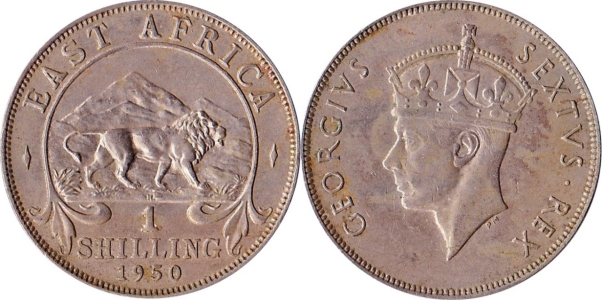 The East African Currency Board, the Postal Union, the Court of Appeal for Eastern Africa, the East African Governors’ Conference, the East African Income Tax Board and the Joint Economic Council are established.
The East African Currency Board, the Postal Union, the Court of Appeal for Eastern Africa, the East African Governors’ Conference, the East African Income Tax Board and the Joint Economic Council are established. -
 The East African Airways Corporation is incorporated. It covered not only the East African region, but operated across Africa, connecting also to Europe and India.
The East African Airways Corporation is incorporated. It covered not only the East African region, but operated across Africa, connecting also to Europe and India. -
 The East African High Commission (EACH) is the coordinating body to deal with a customs union, a common external tariff, currency and post- age; and also with common services in transport and communications, research and education.
The East African High Commission (EACH) is the coordinating body to deal with a customs union, a common external tariff, currency and post- age; and also with common services in transport and communications, research and education. -
 Following independence, the East African High Commission is replaced by the East African Common Services Organisation (EACSO), which many observers thought would lead to a political federation between the three territories. However, the new organisation suffered from a lack of joint planning and fiscal policy, separate political policies and Kenya’s dominant economic position.
Following independence, the East African High Commission is replaced by the East African Common Services Organisation (EACSO), which many observers thought would lead to a political federation between the three territories. However, the new organisation suffered from a lack of joint planning and fiscal policy, separate political policies and Kenya’s dominant economic position. -
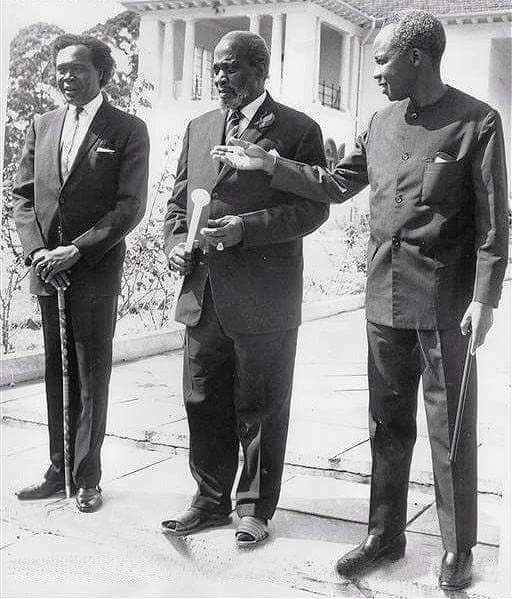 Signing of the ‘Treaty for East African Cooperation’ among Kenya, Uganda and Tanzania.
Signing of the ‘Treaty for East African Cooperation’ among Kenya, Uganda and Tanzania. -
Dissolution of the first East African Community.
-
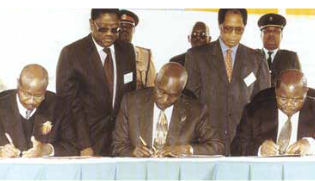 The Treaty for the Establishment of the East African Community was signed by the three Presidents of the Republic of Kenya, Republic of Uganda and the United Republic of Tanzania on 30th November, 1999. 30th November is recognized as EAC Day across the region.
The Treaty for the Establishment of the East African Community was signed by the three Presidents of the Republic of Kenya, Republic of Uganda and the United Republic of Tanzania on 30th November, 1999. 30th November is recognized as EAC Day across the region. -
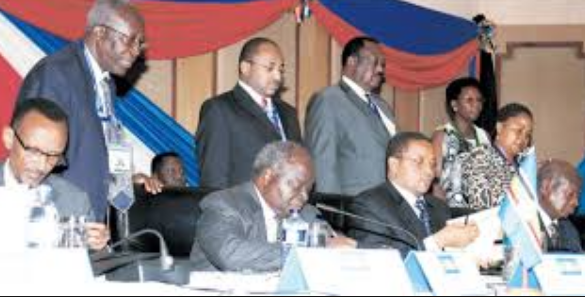 The Protocol for the establishment of the EAC Customs Union was signed on 1st July, 2005.
The Protocol for the establishment of the EAC Customs Union was signed on 1st July, 2005. -
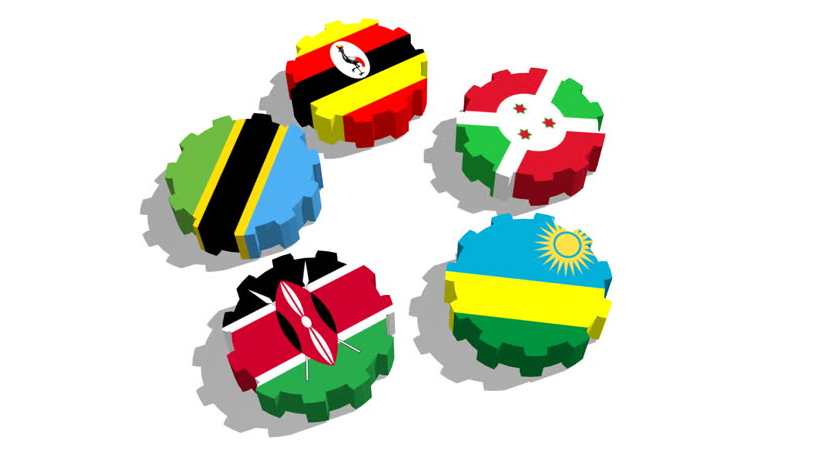 The Republic of Rwanda and the Republic of Burundi were admitted and became full members of EAC on 1st July, 2007.
The Republic of Rwanda and the Republic of Burundi were admitted and became full members of EAC on 1st July, 2007. -
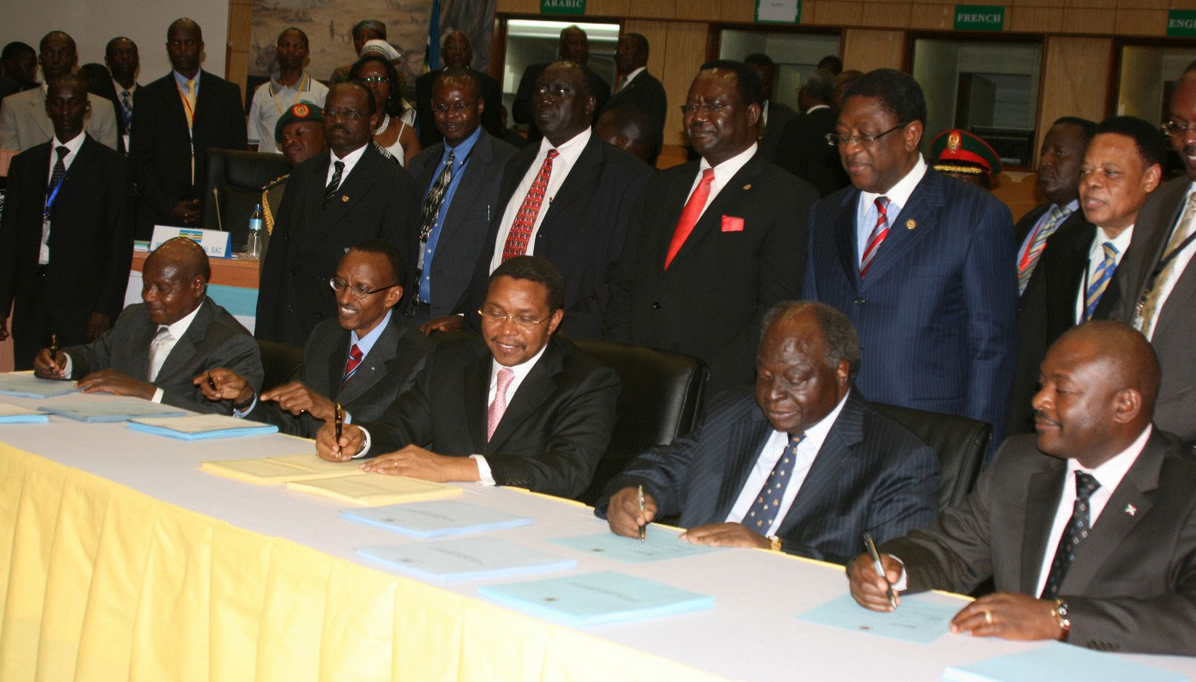 The EAC Common Market Protocol entered into force on 1st July, 2010, an expansion of the bloc’s existing Customs Union.
The EAC Common Market Protocol entered into force on 1st July, 2010, an expansion of the bloc’s existing Customs Union. -
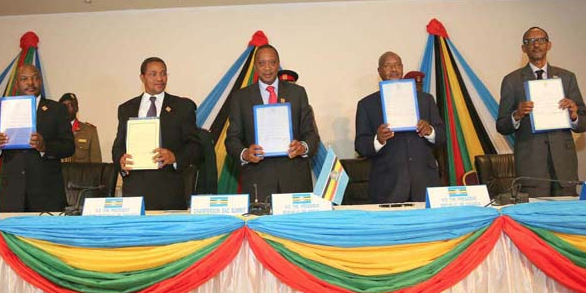 The East African Monetary Union (EAMU) is the third milestone of the EAC integration process. The EAMU Protocol was signed on 30th November, 2013 and set the groundwork for a monetary union within 10 years while allowing the EAC Partner States to progressively converge their currencies into a single currency in the Community.
The East African Monetary Union (EAMU) is the third milestone of the EAC integration process. The EAMU Protocol was signed on 30th November, 2013 and set the groundwork for a monetary union within 10 years while allowing the EAC Partner States to progressively converge their currencies into a single currency in the Community. -
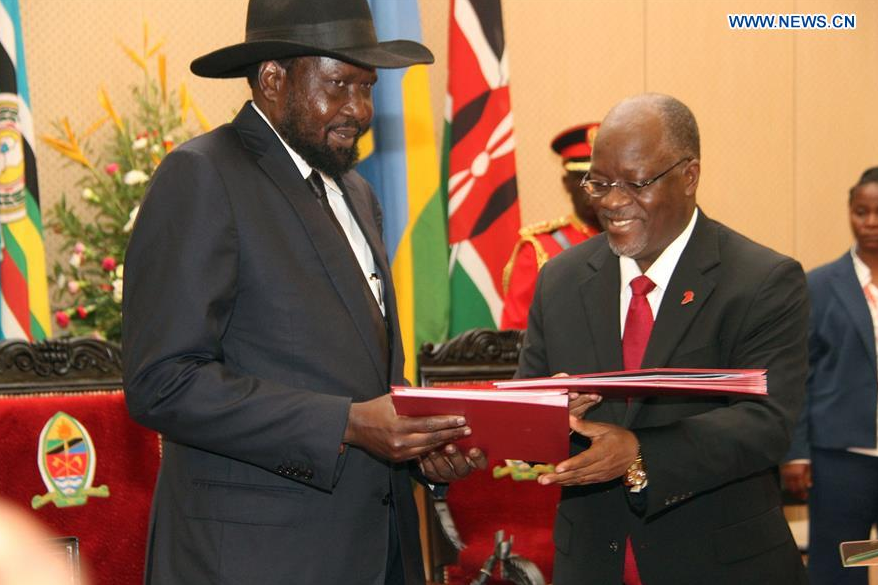 The Republic of South Sudan was admitted and became a full member of EAC on 5th September, 2016.
The Republic of South Sudan was admitted and became a full member of EAC on 5th September, 2016. -
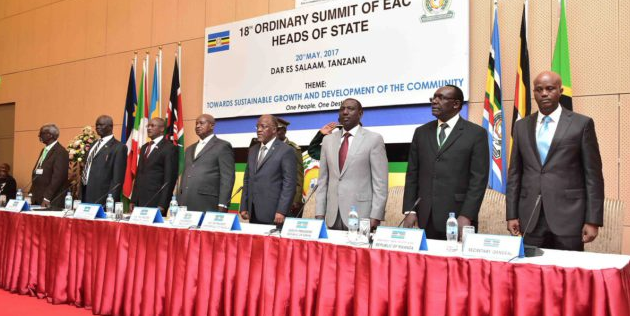 On 20th May, 2017, the EAC Heads of State adopted the Political Confederation as a transitional model of the East African Political Federation.
On 20th May, 2017, the EAC Heads of State adopted the Political Confederation as a transitional model of the East African Political Federation. -
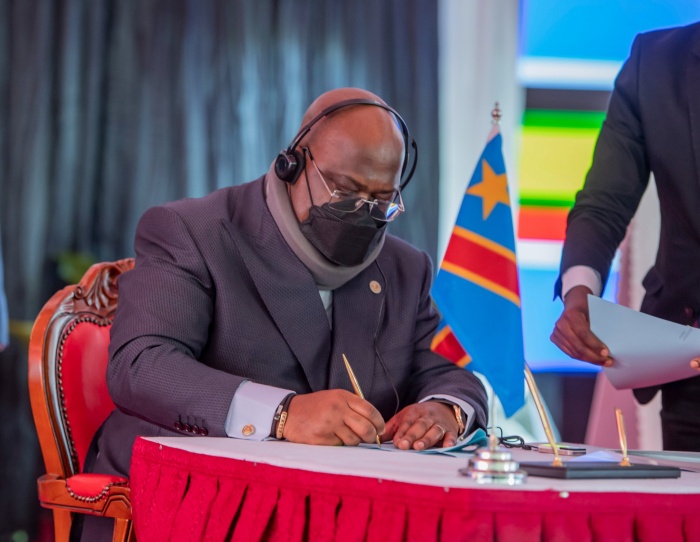 The Democratic Republic of the Congo (DRC), is admited to the EAC and becomes a full member on 11 July, 2022.
The Democratic Republic of the Congo (DRC), is admited to the EAC and becomes a full member on 11 July, 2022. -
 The Federal Republic of Somalia is admited to the EAC and aceedes to the EAC Treaty on 15 December, 2023.
The Federal Republic of Somalia is admited to the EAC and aceedes to the EAC Treaty on 15 December, 2023. -
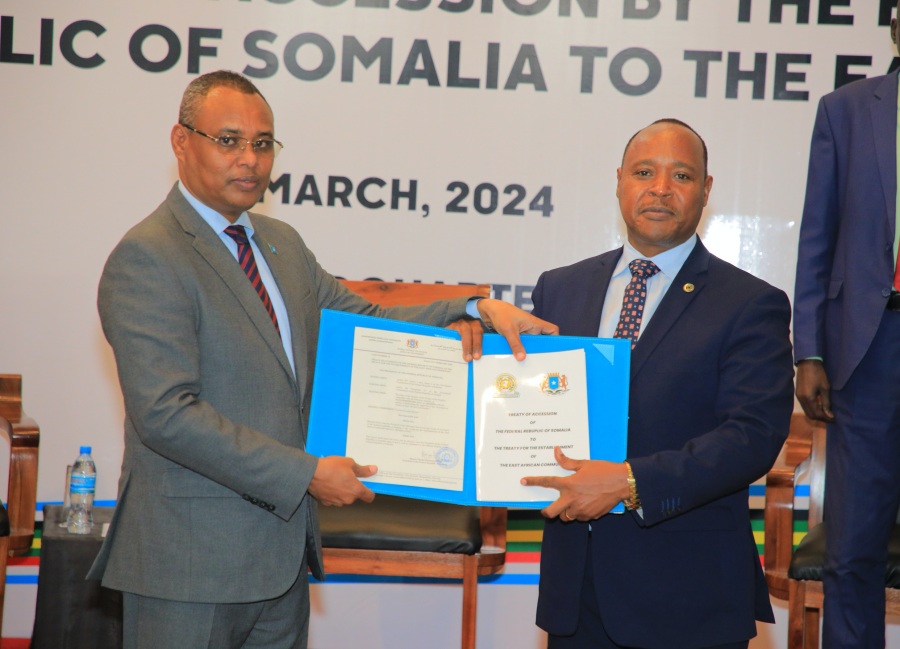 The Federal Republic of Somalia deposits her Instrument of Ratification of the EAC Treaty and becomes a full member of the Community on 4 March, 2024
The Federal Republic of Somalia deposits her Instrument of Ratification of the EAC Treaty and becomes a full member of the Community on 4 March, 2024

